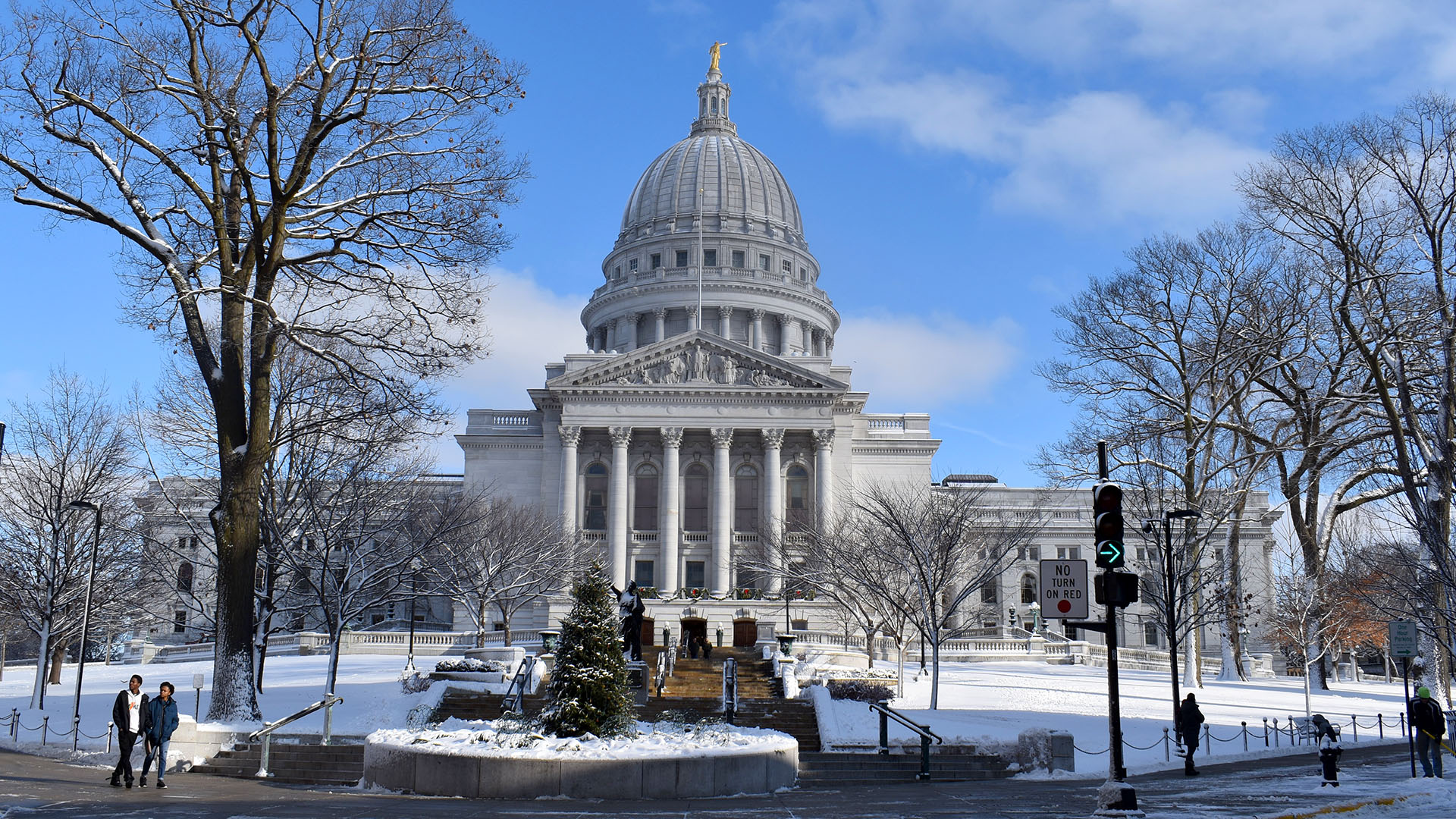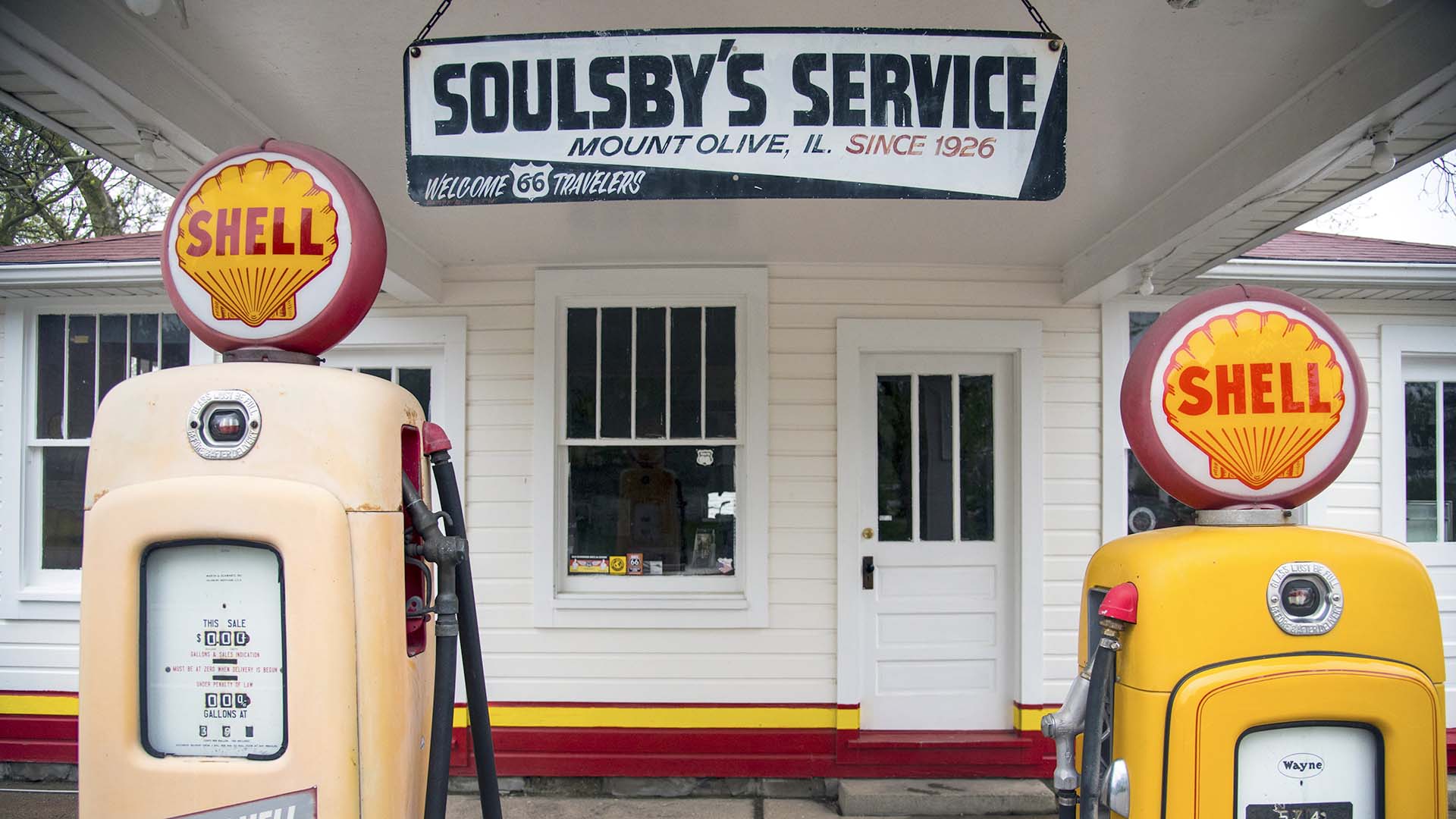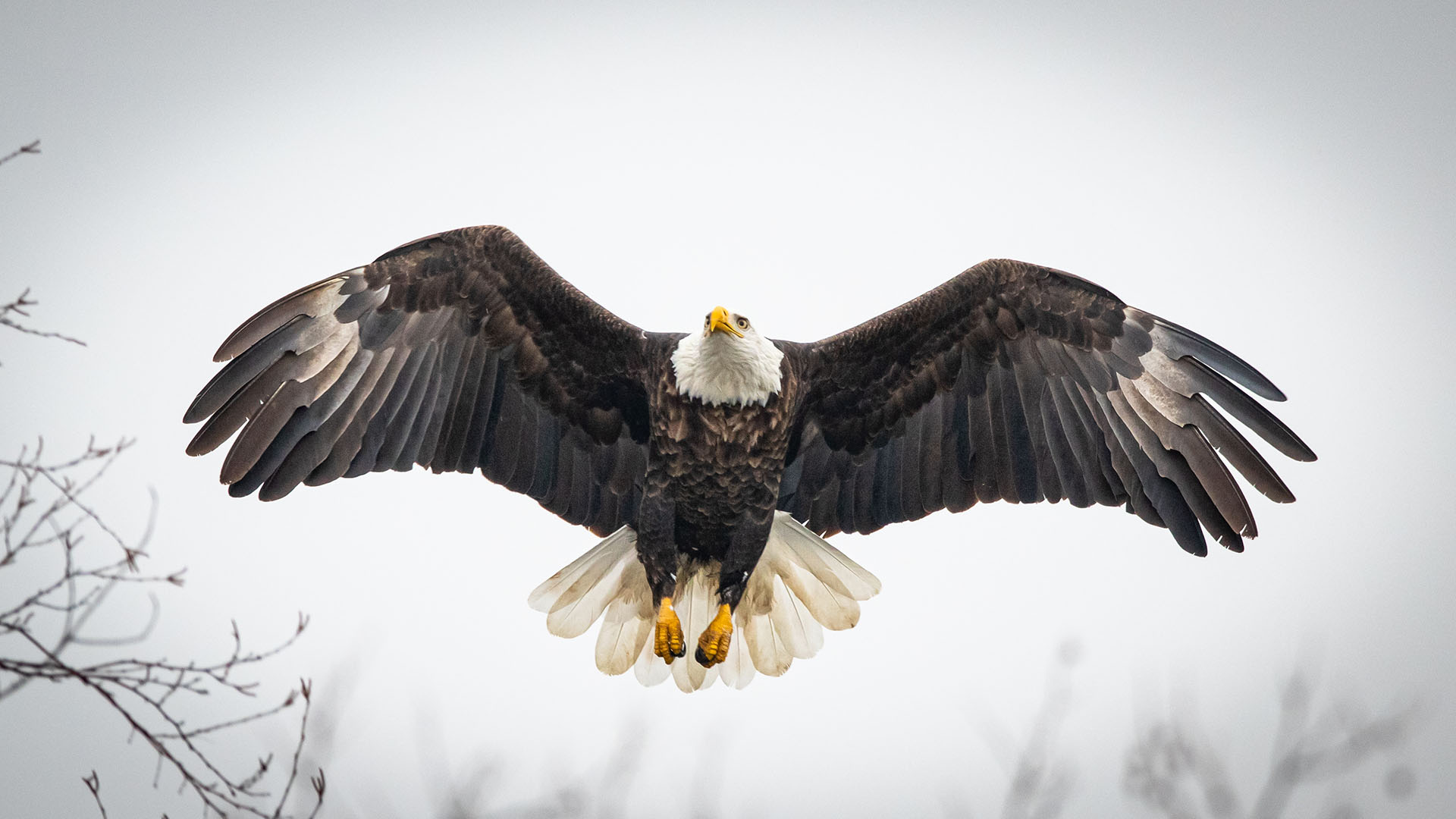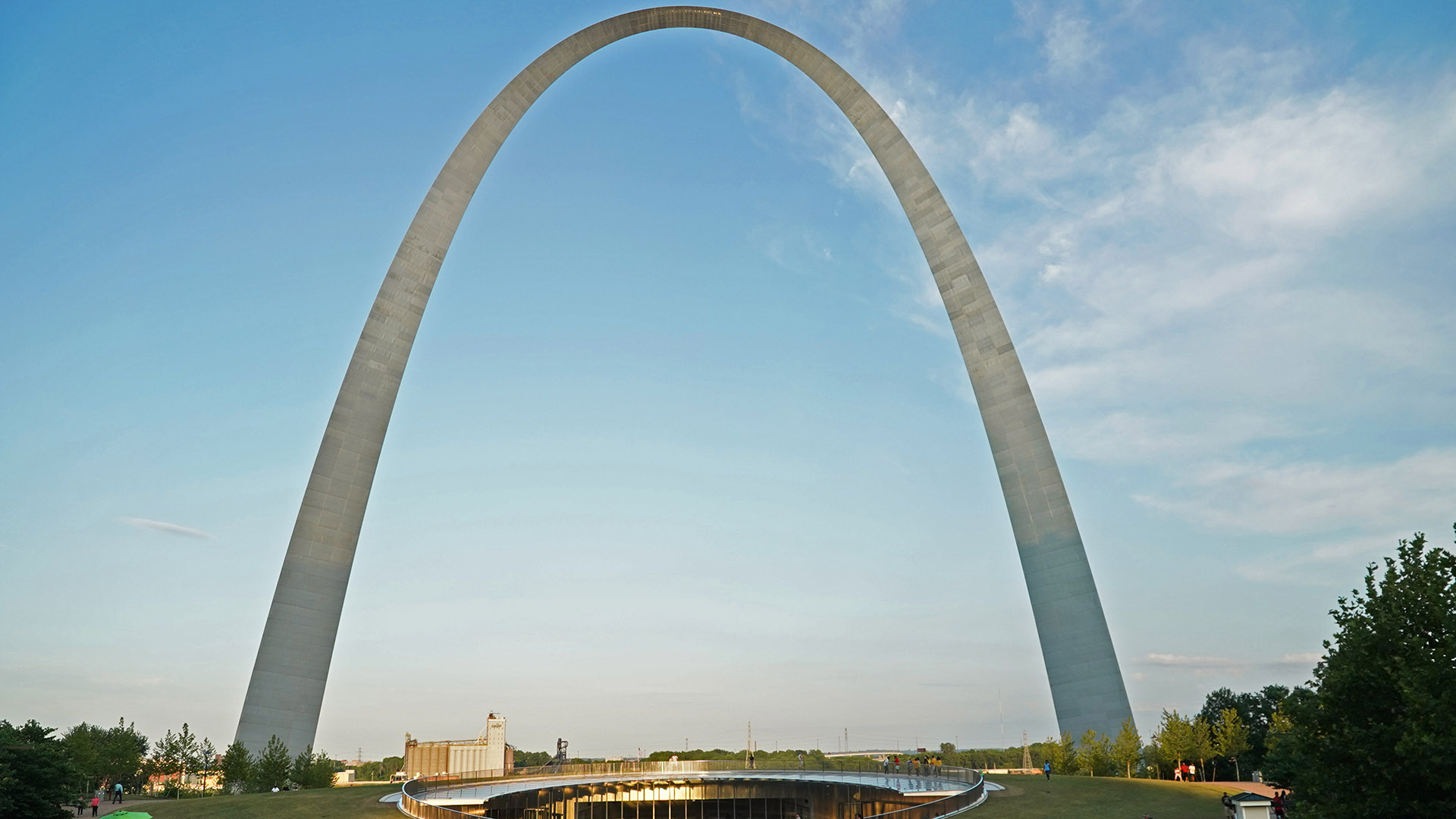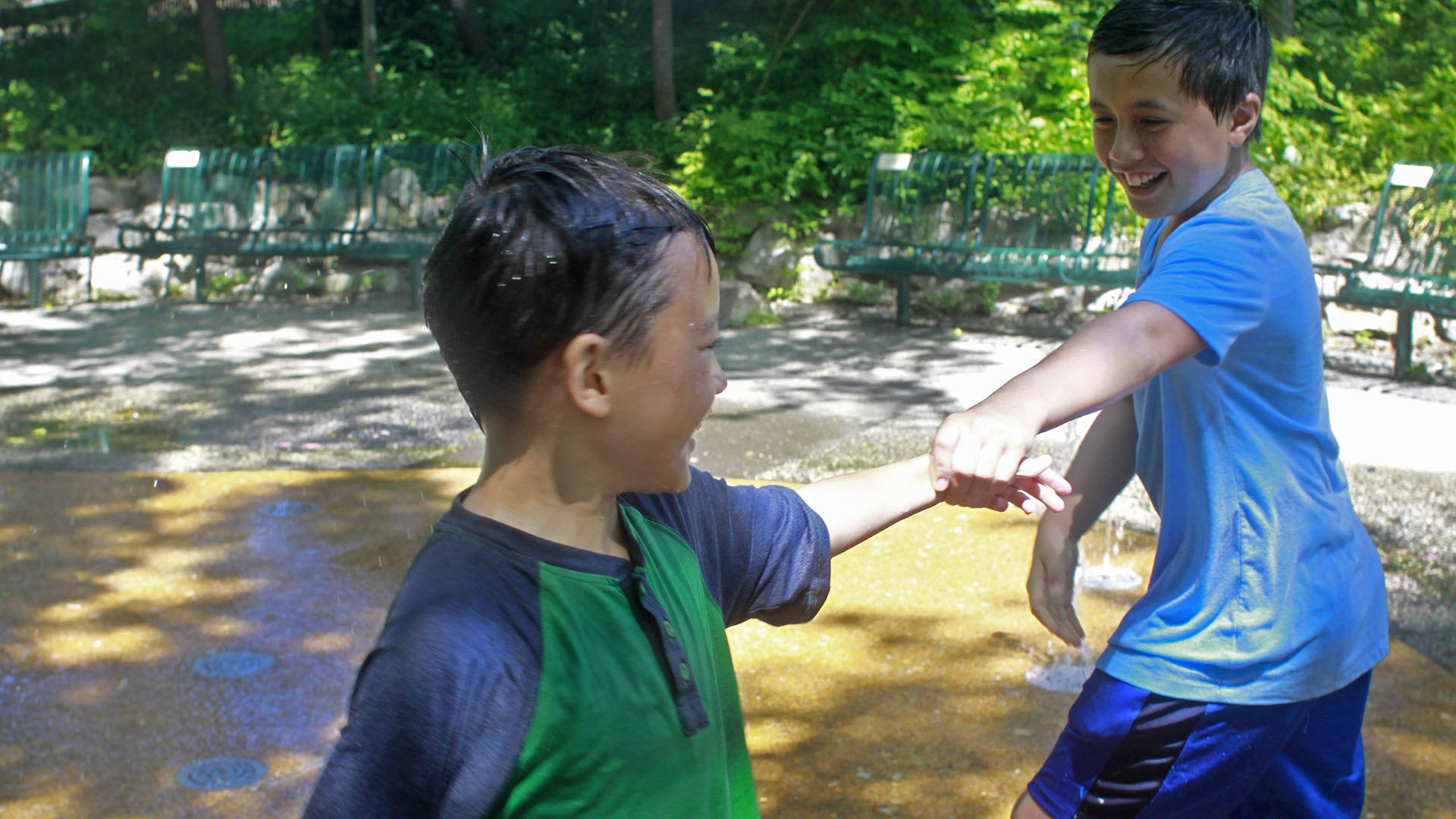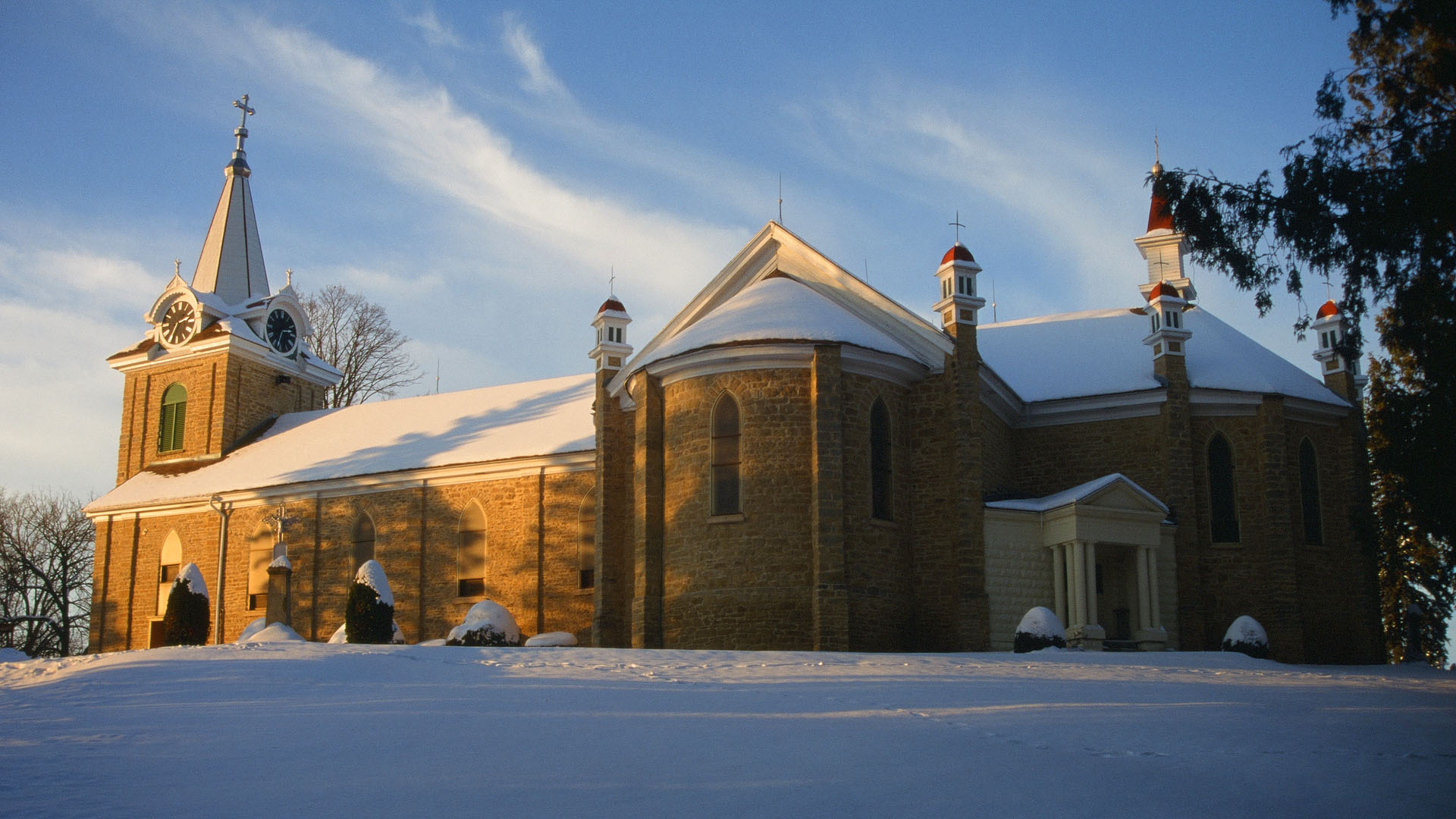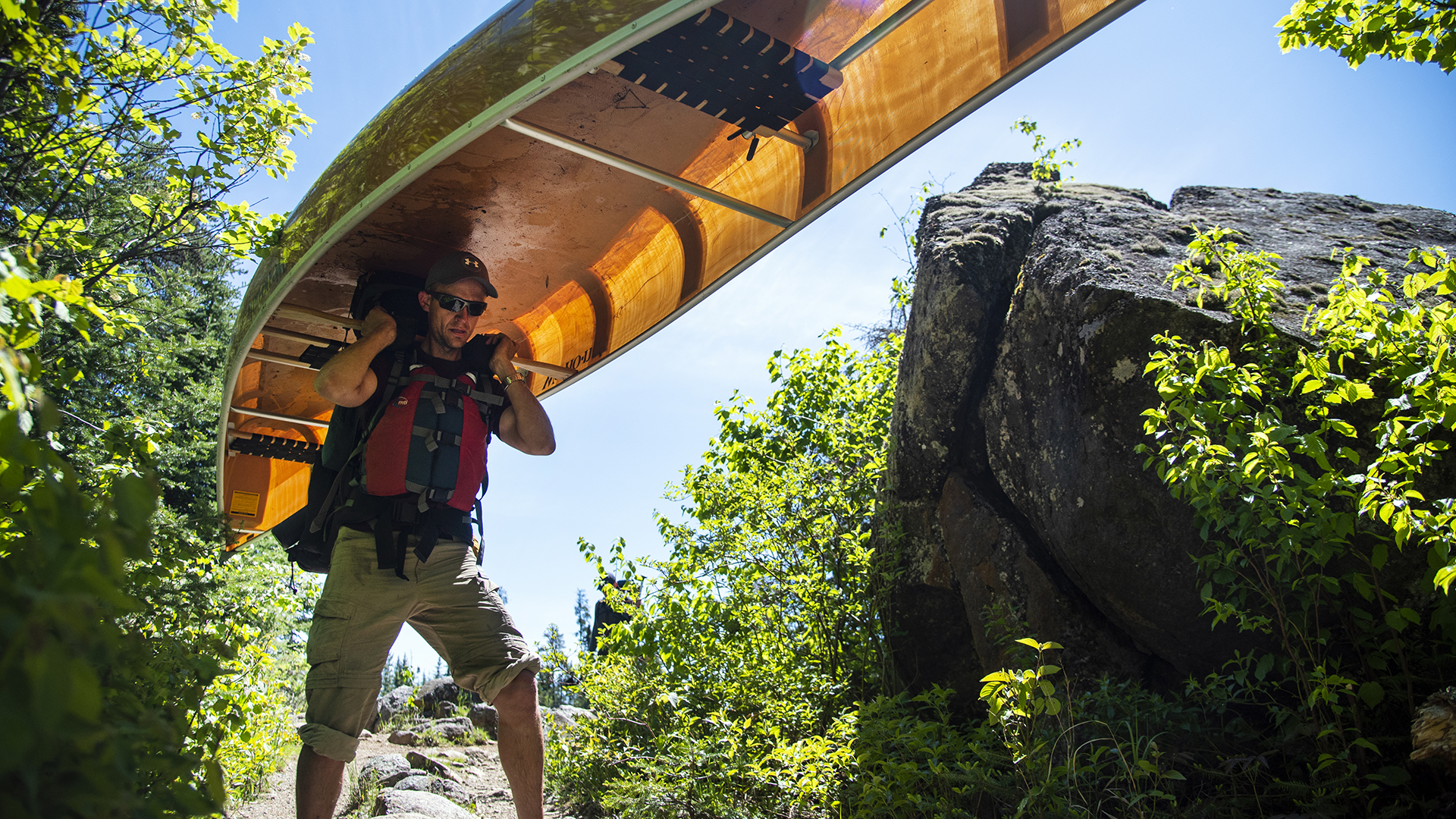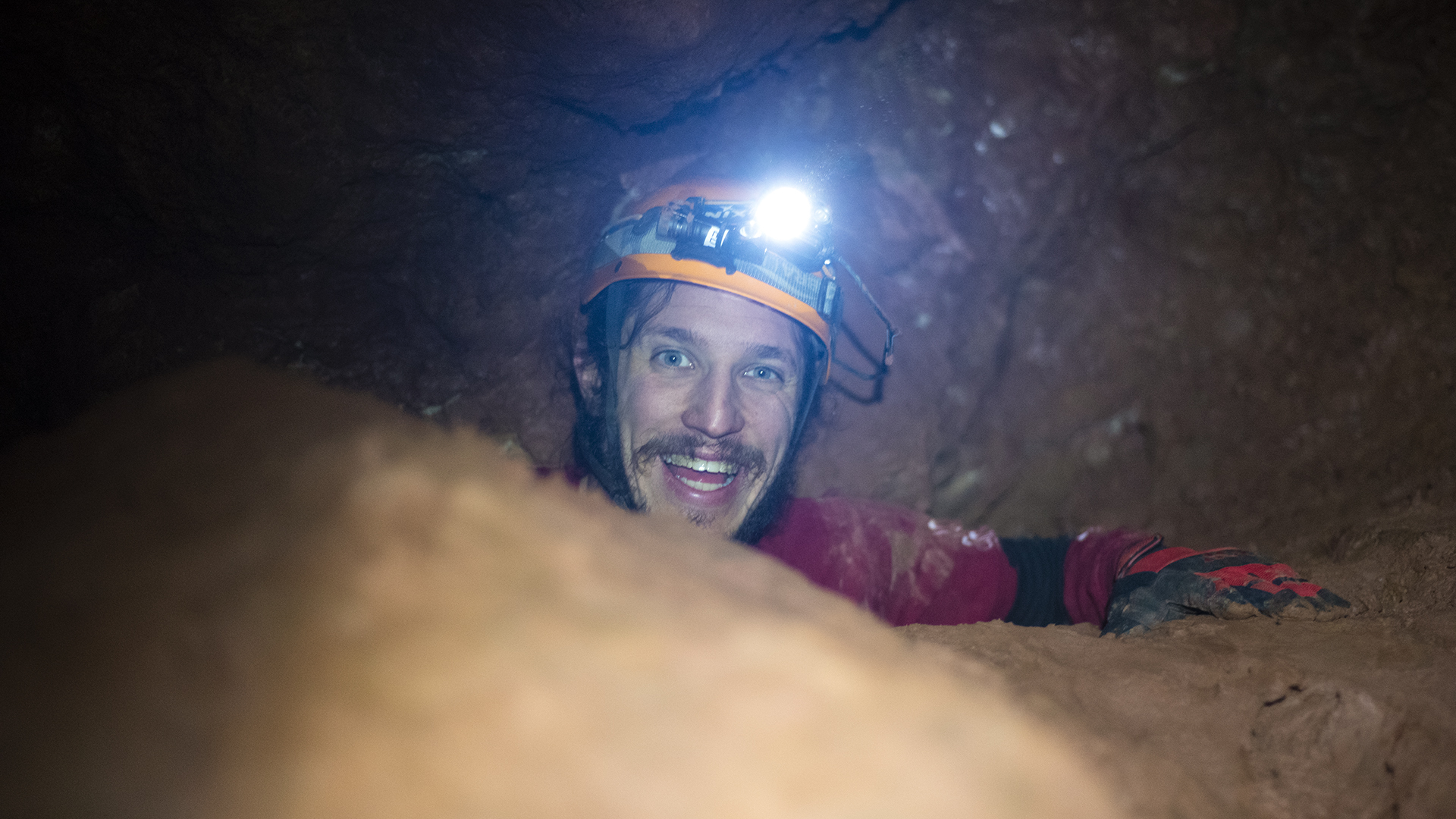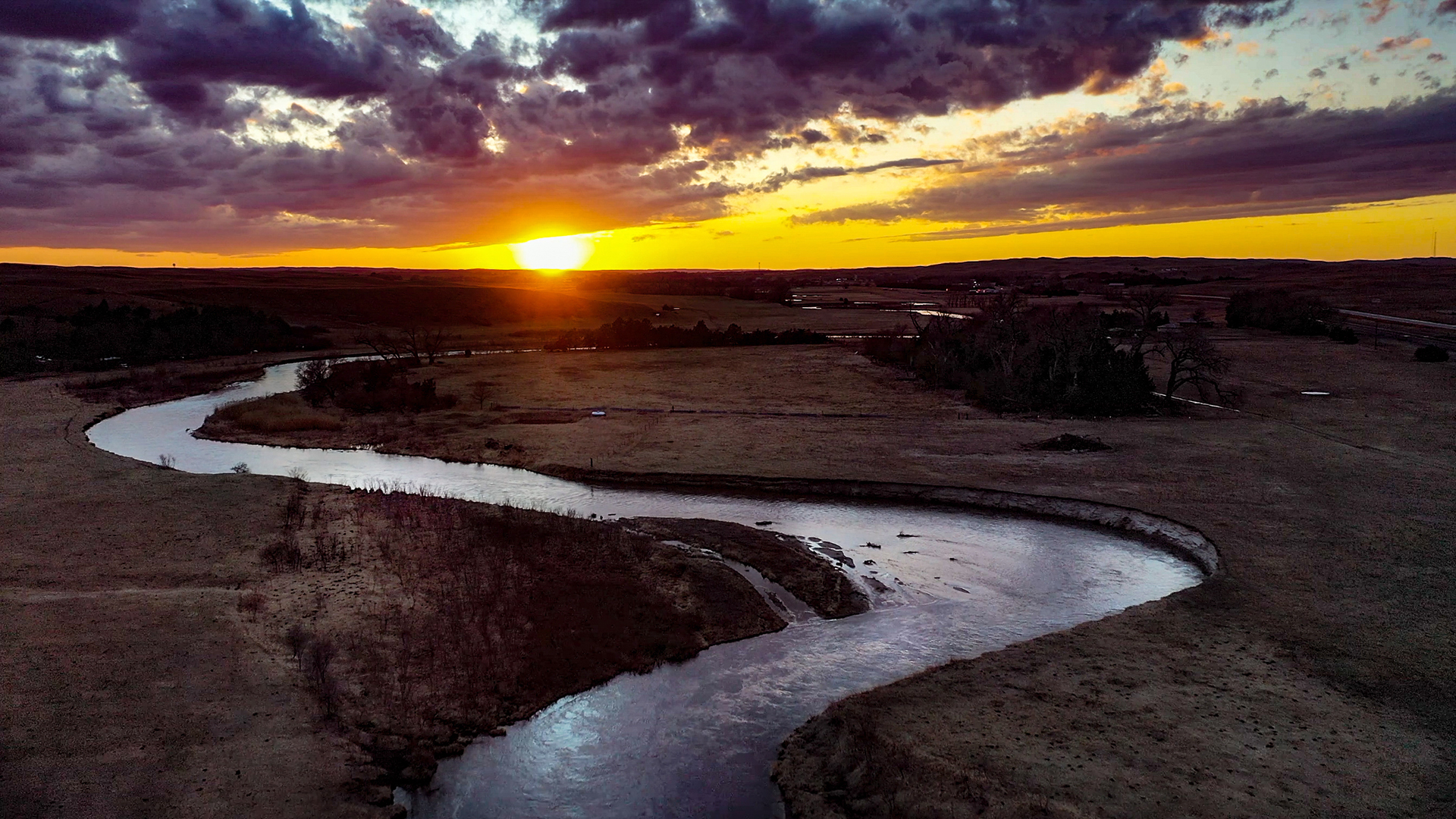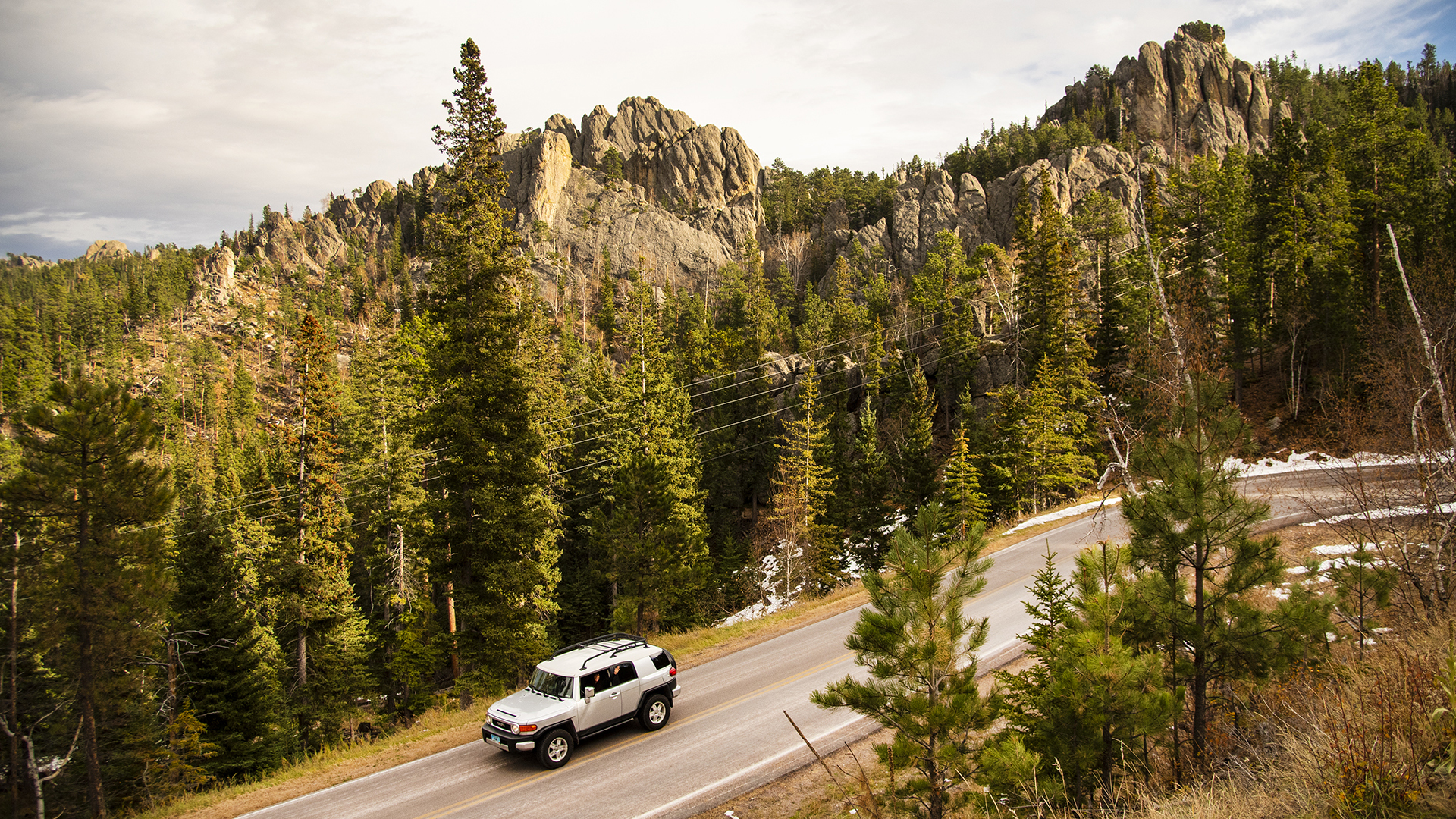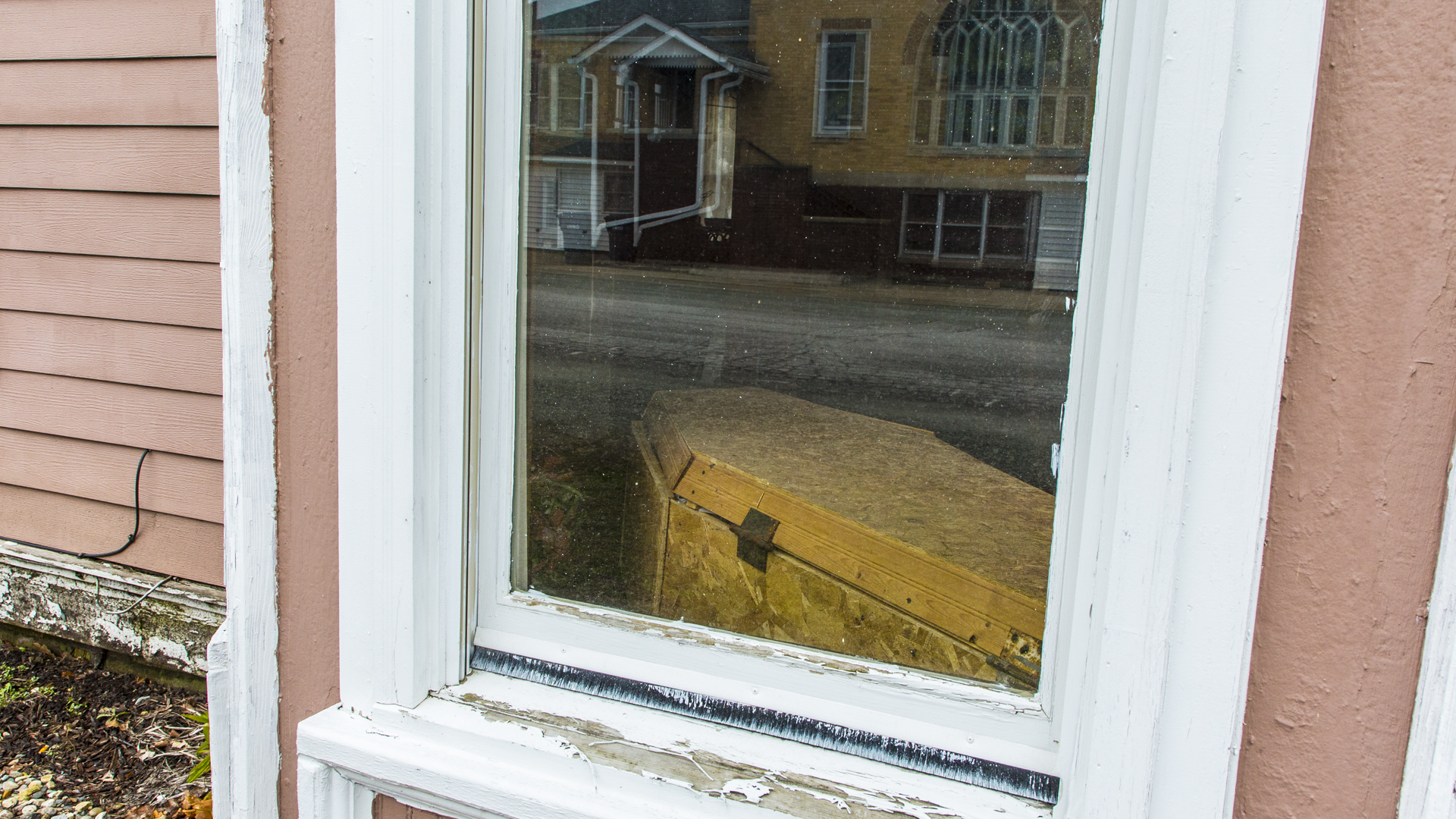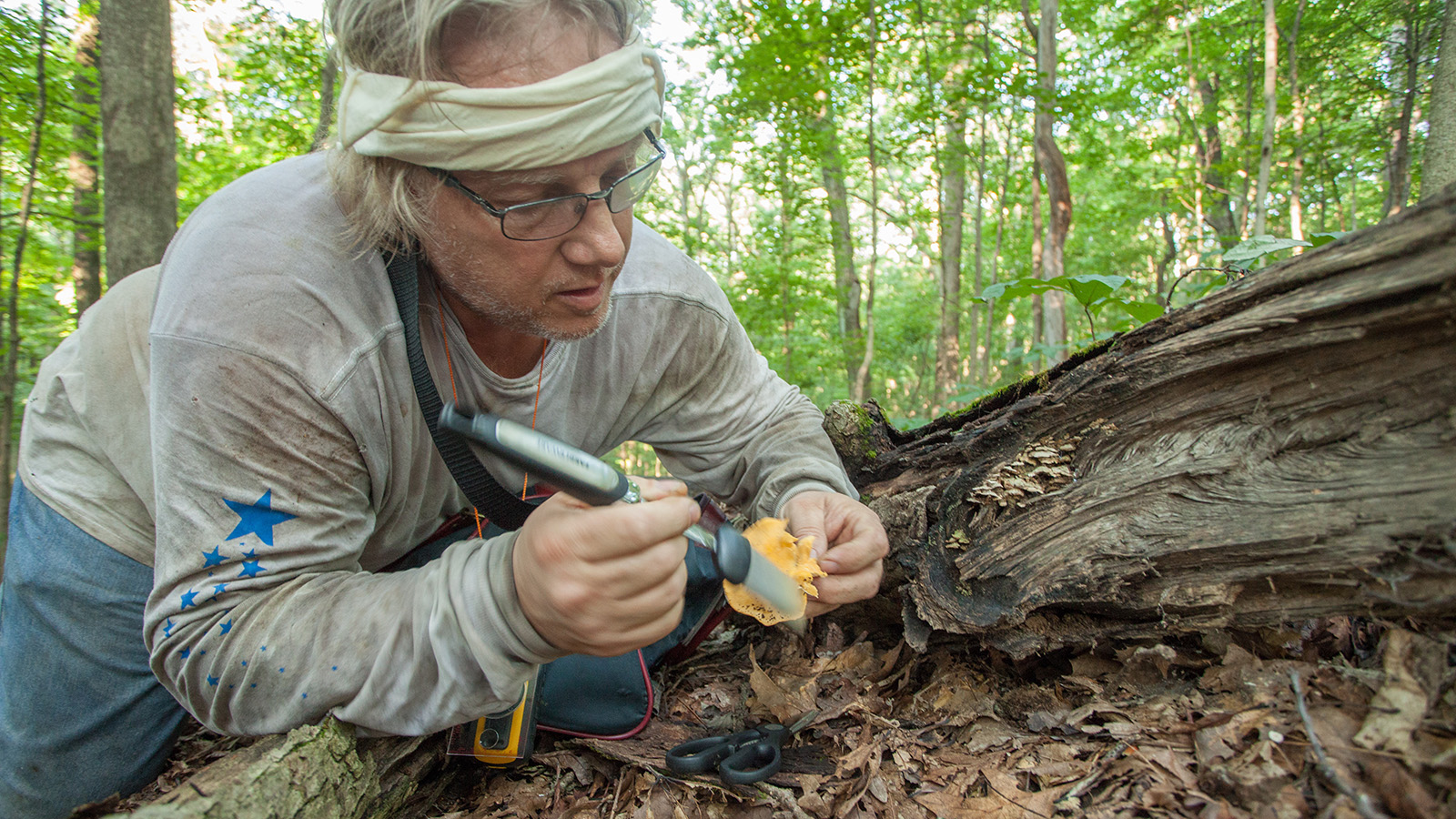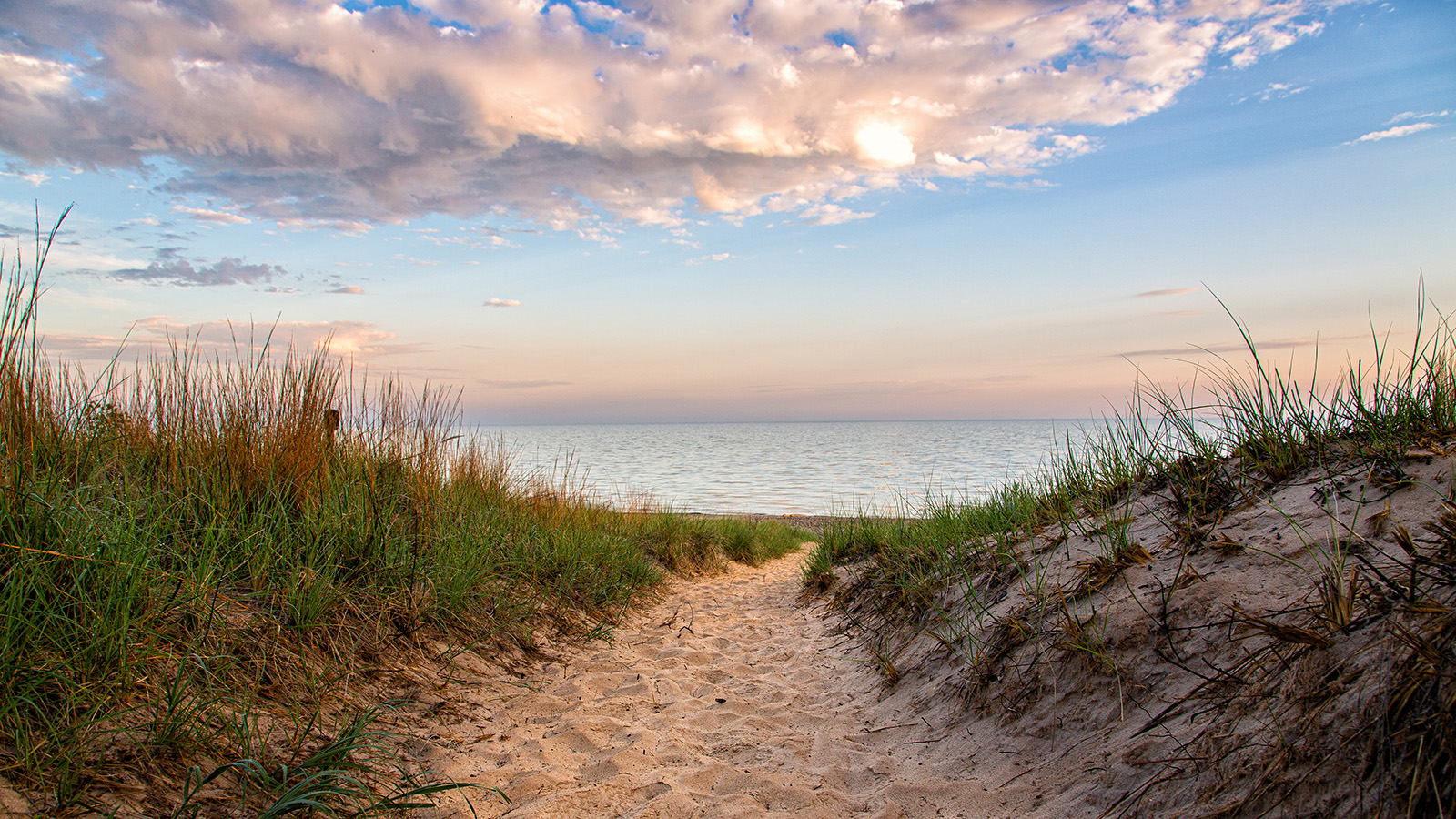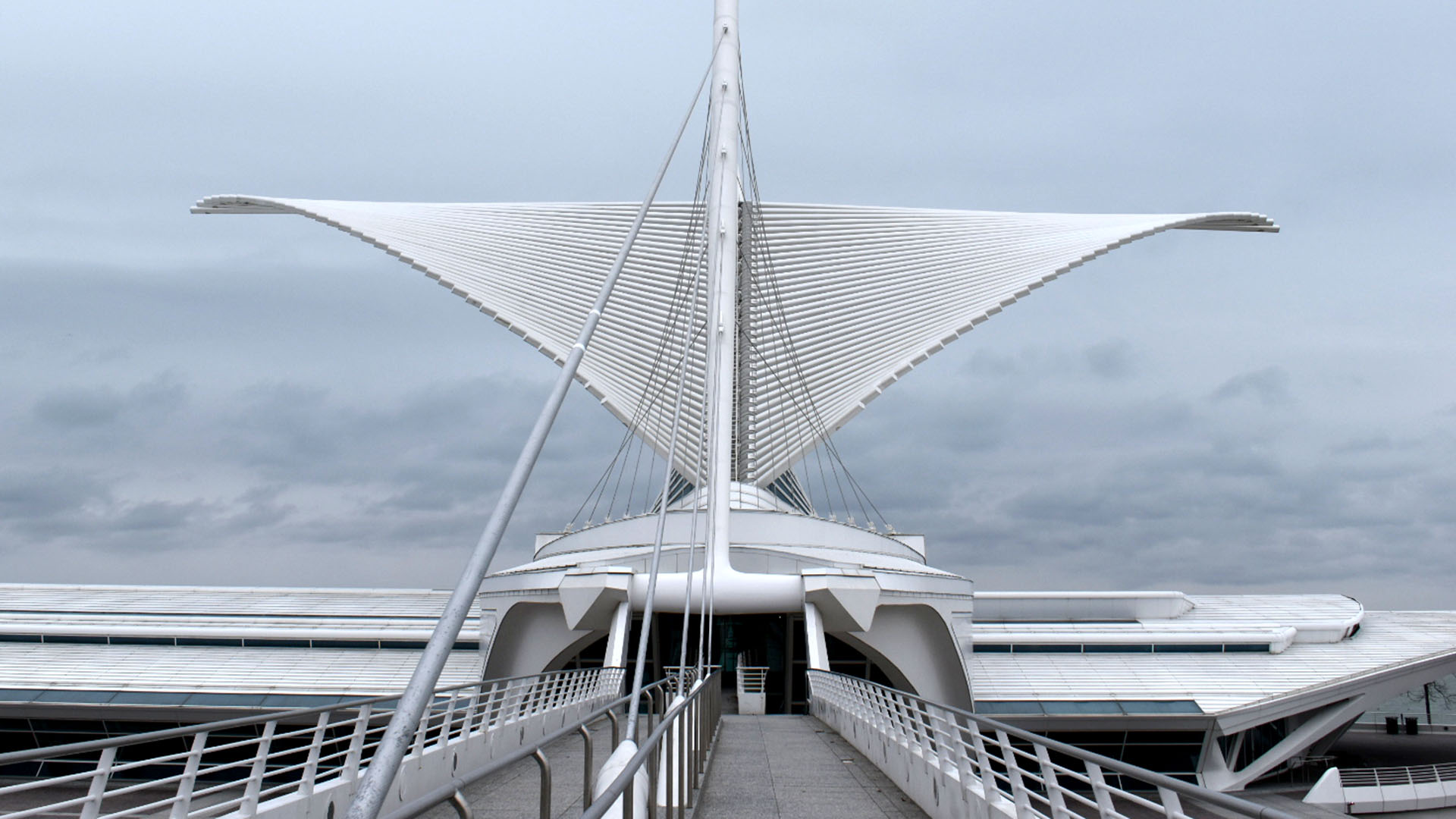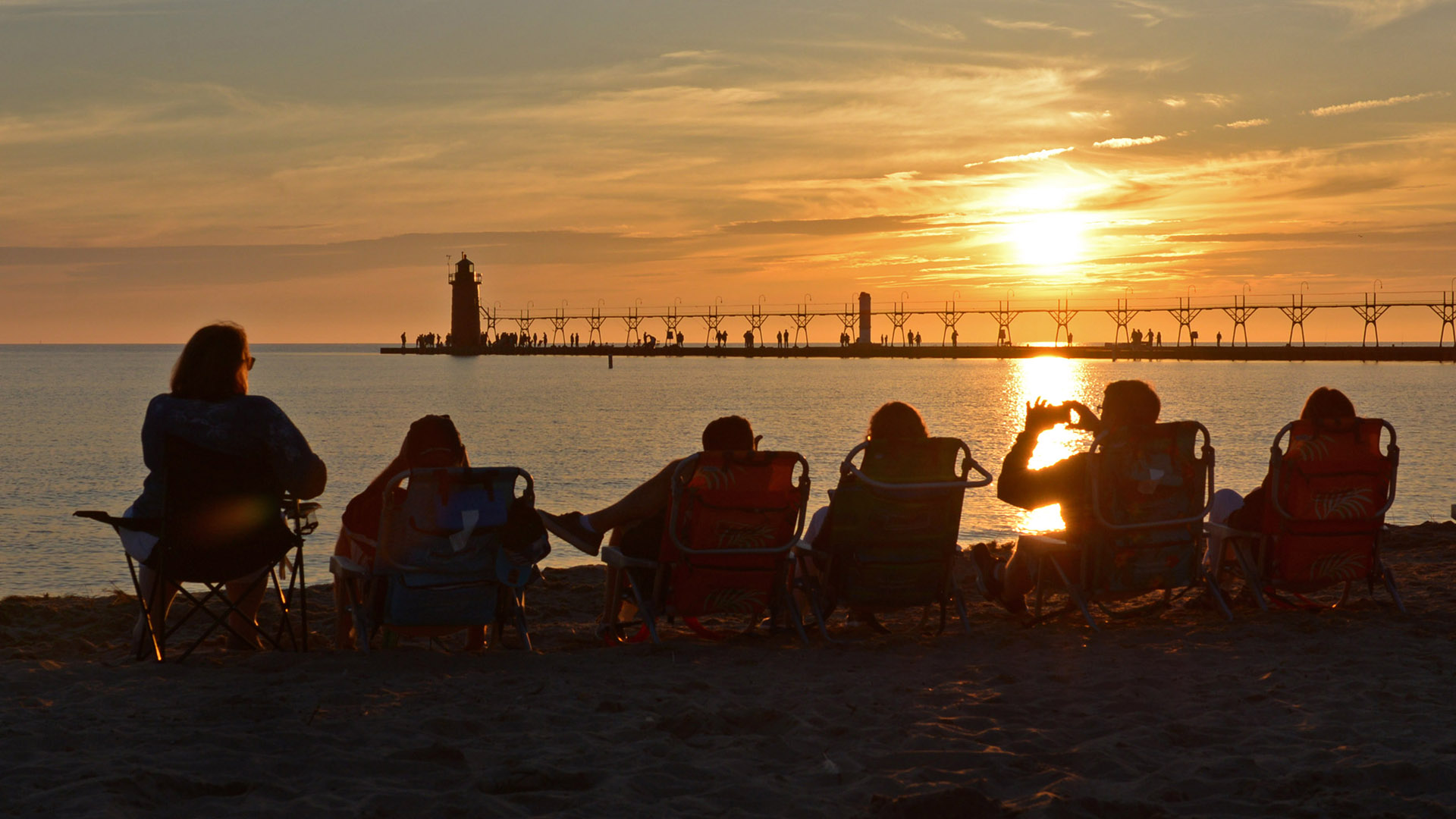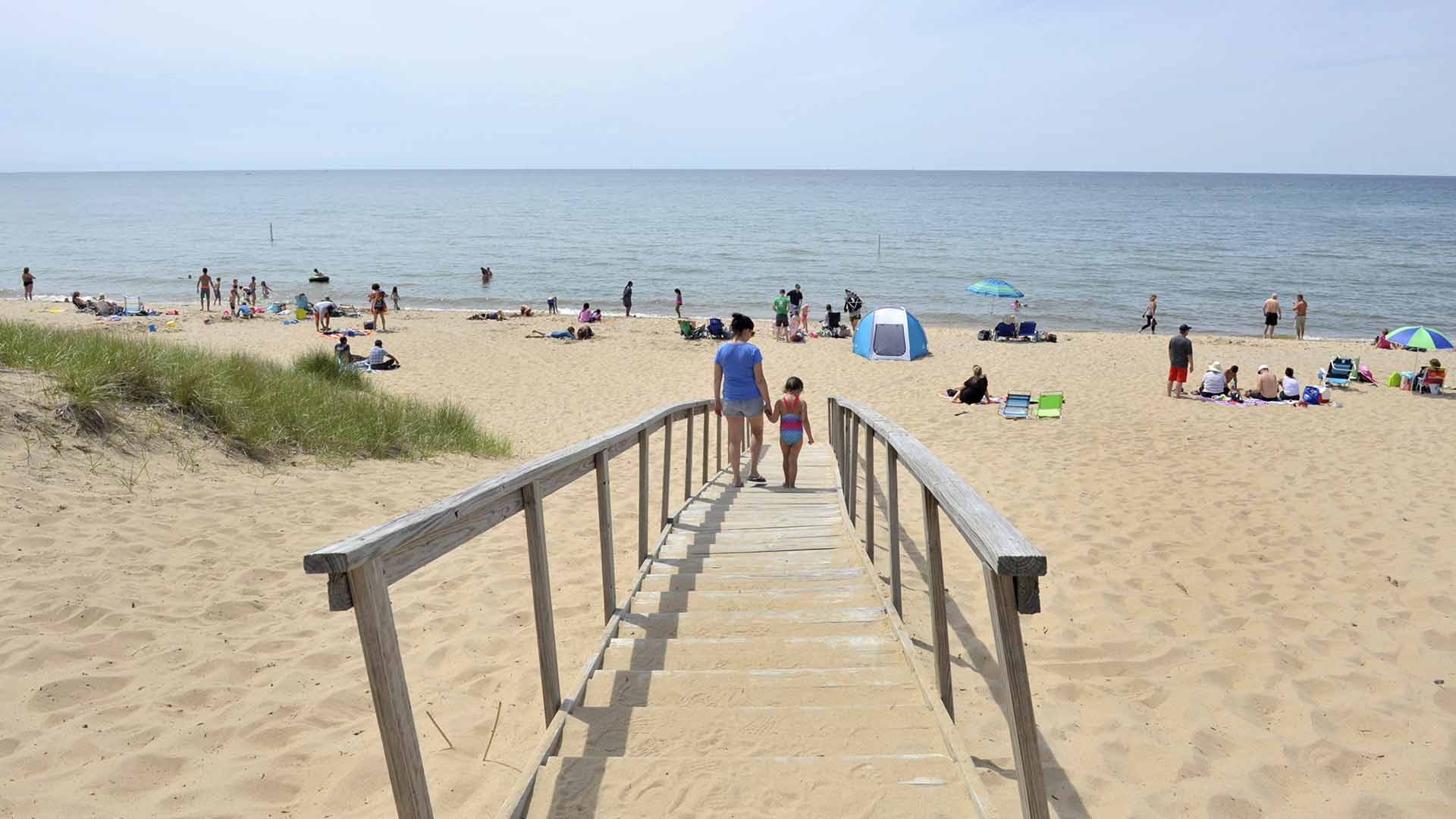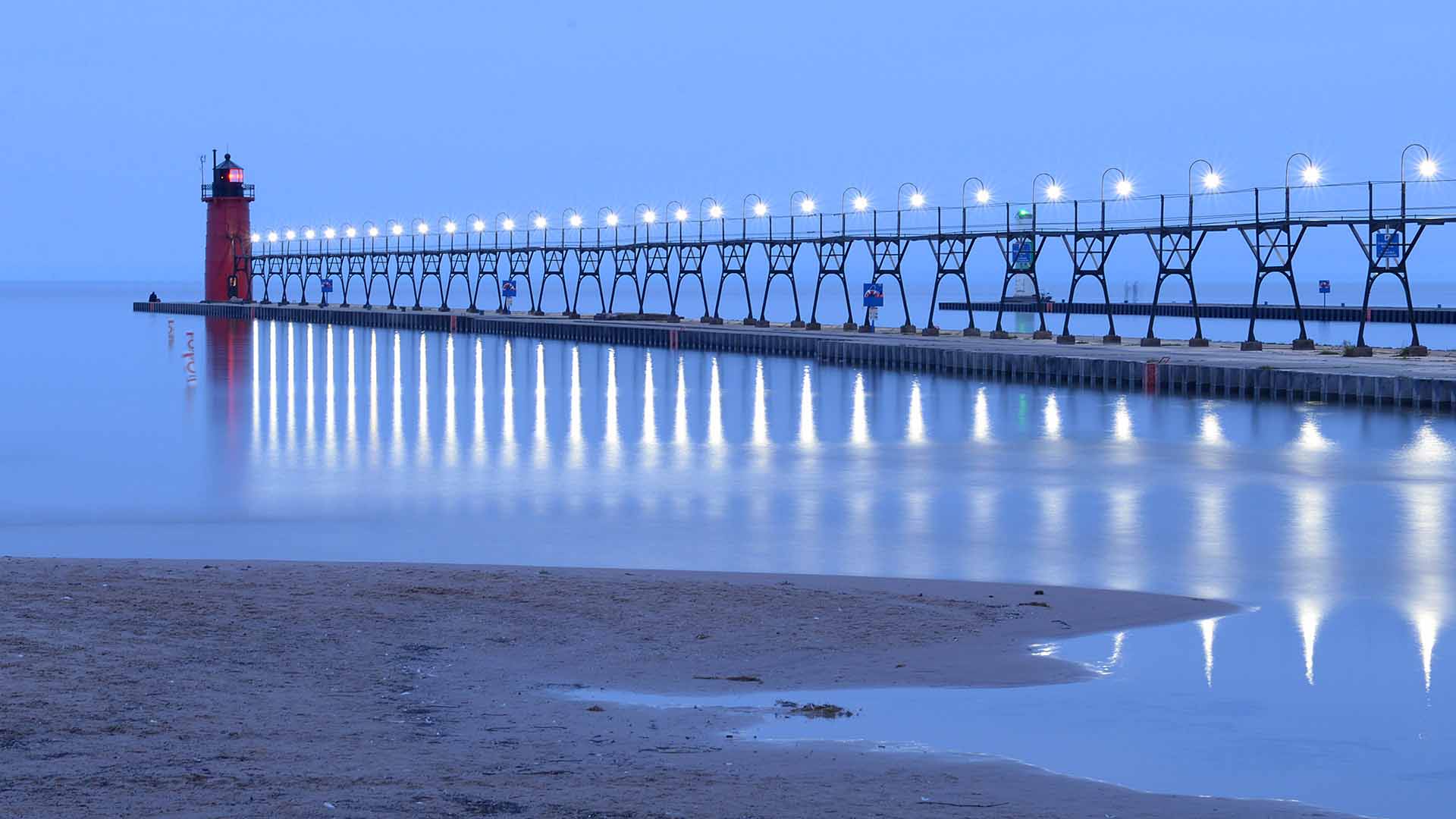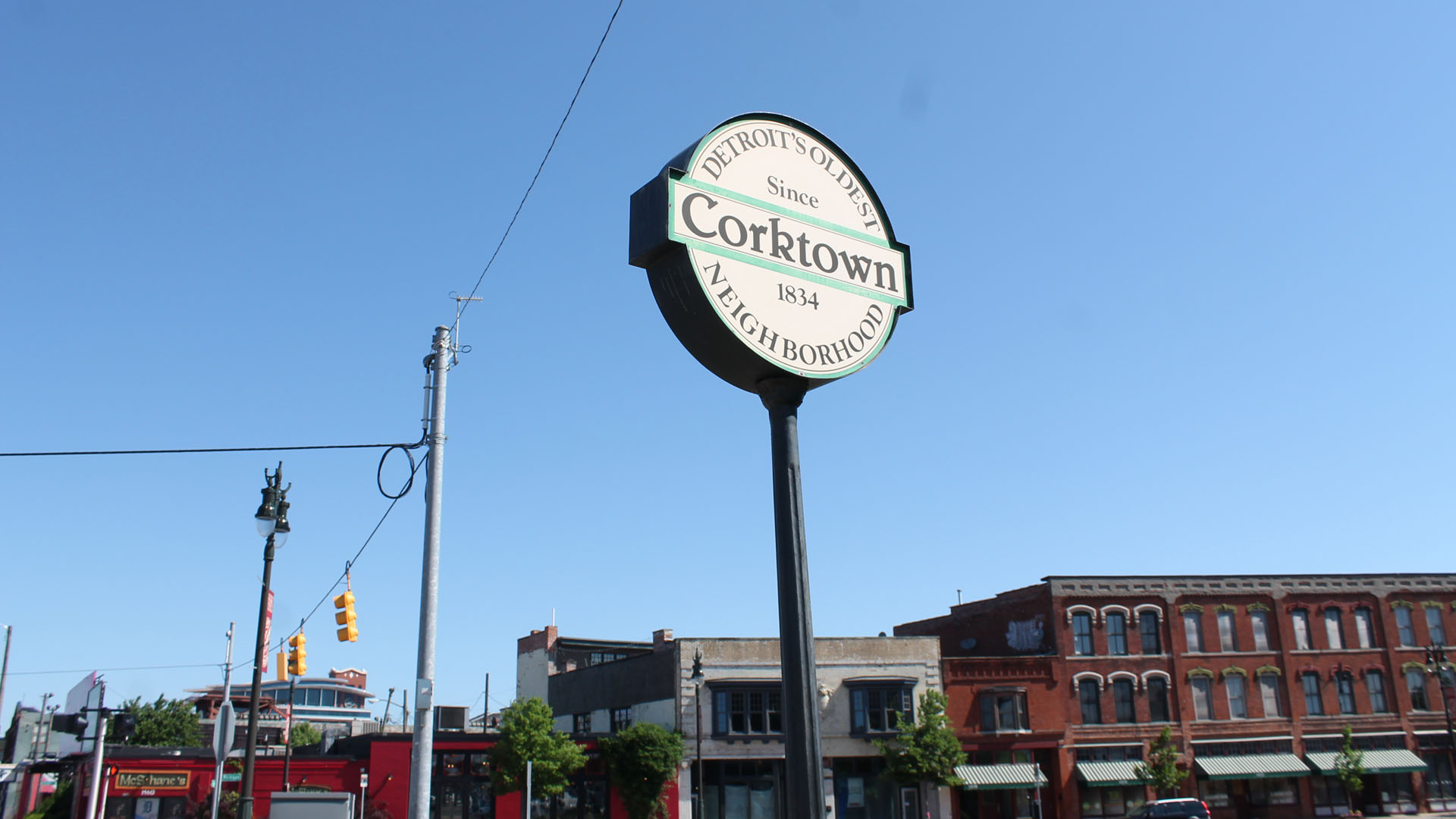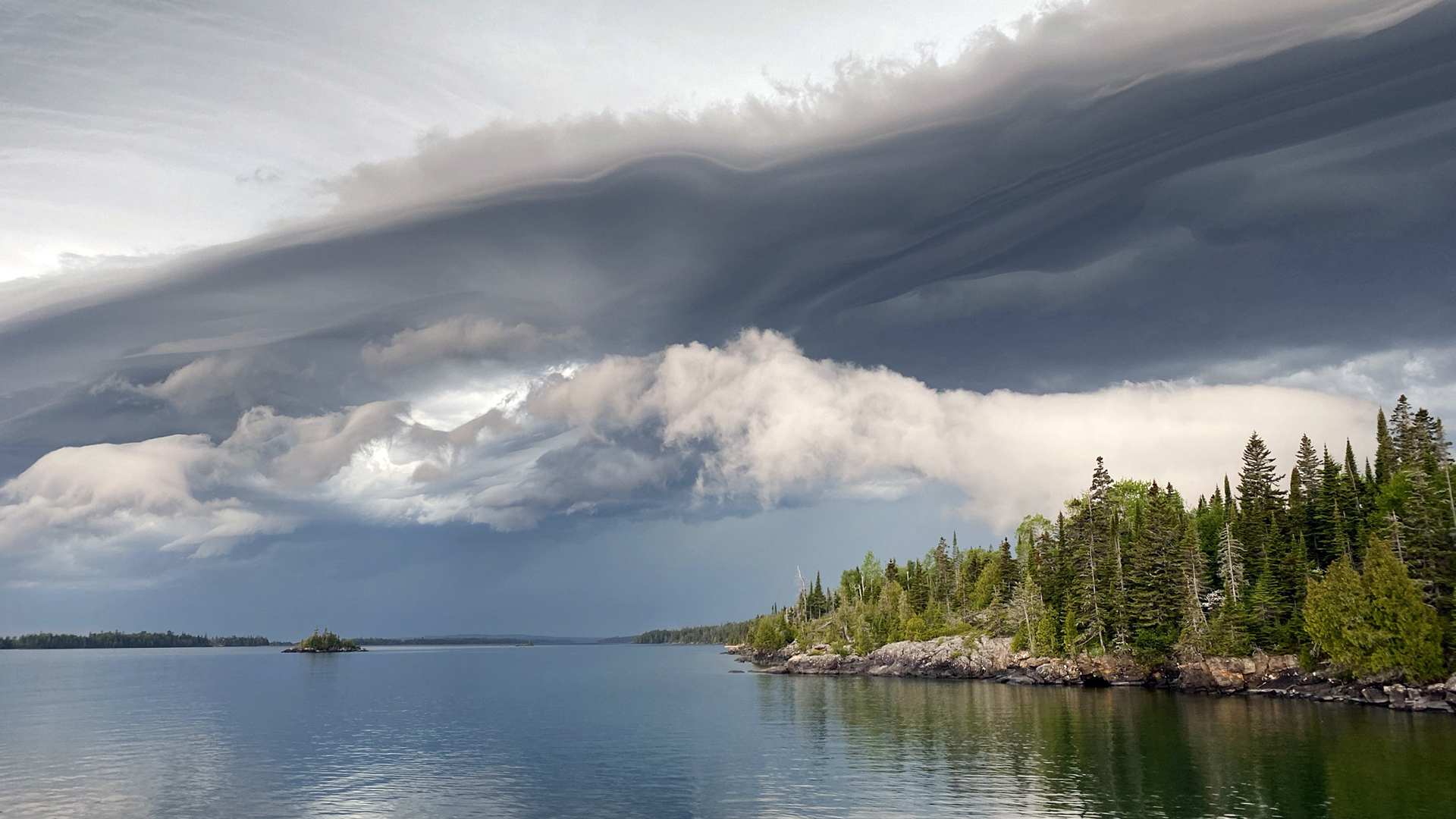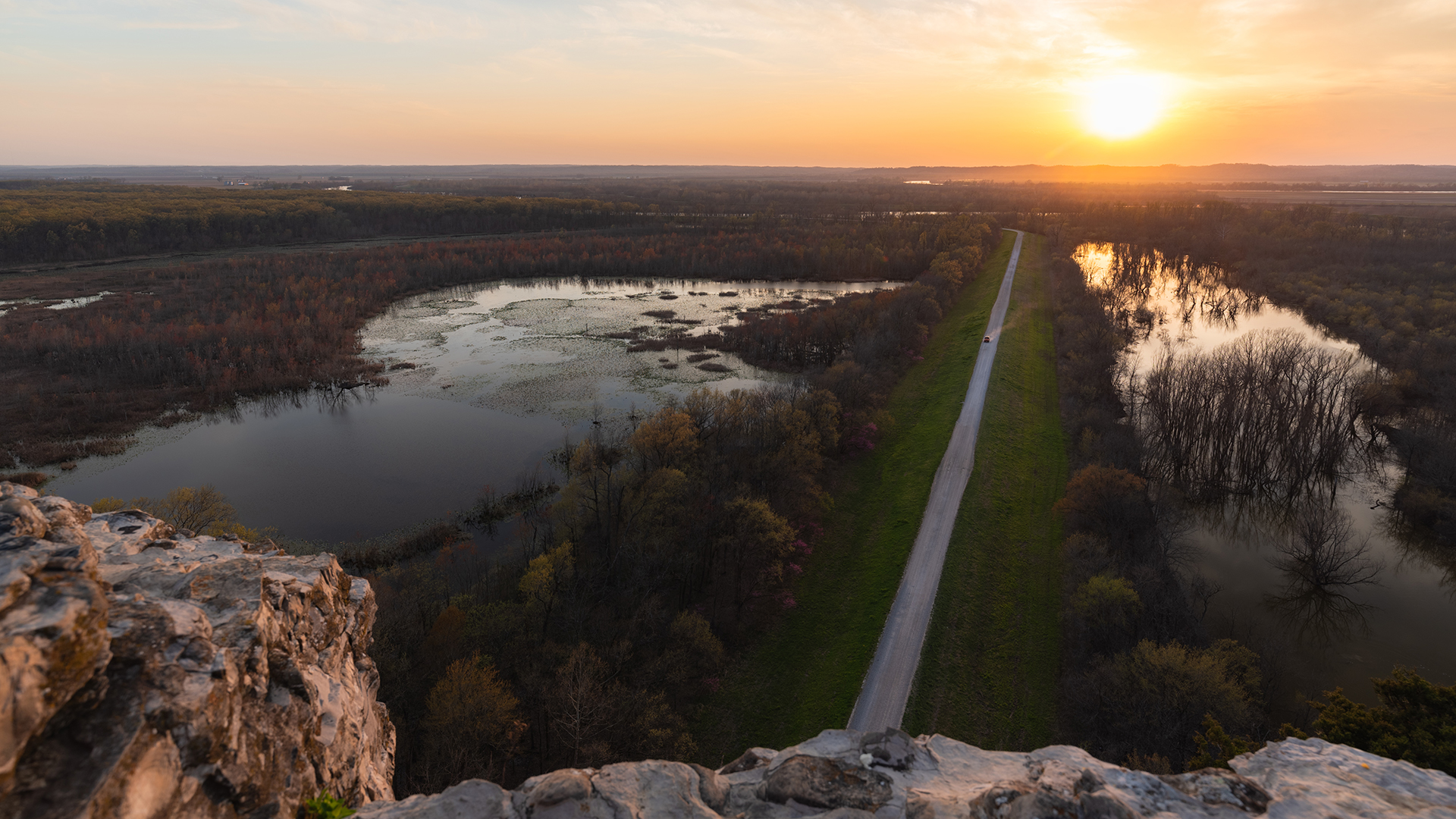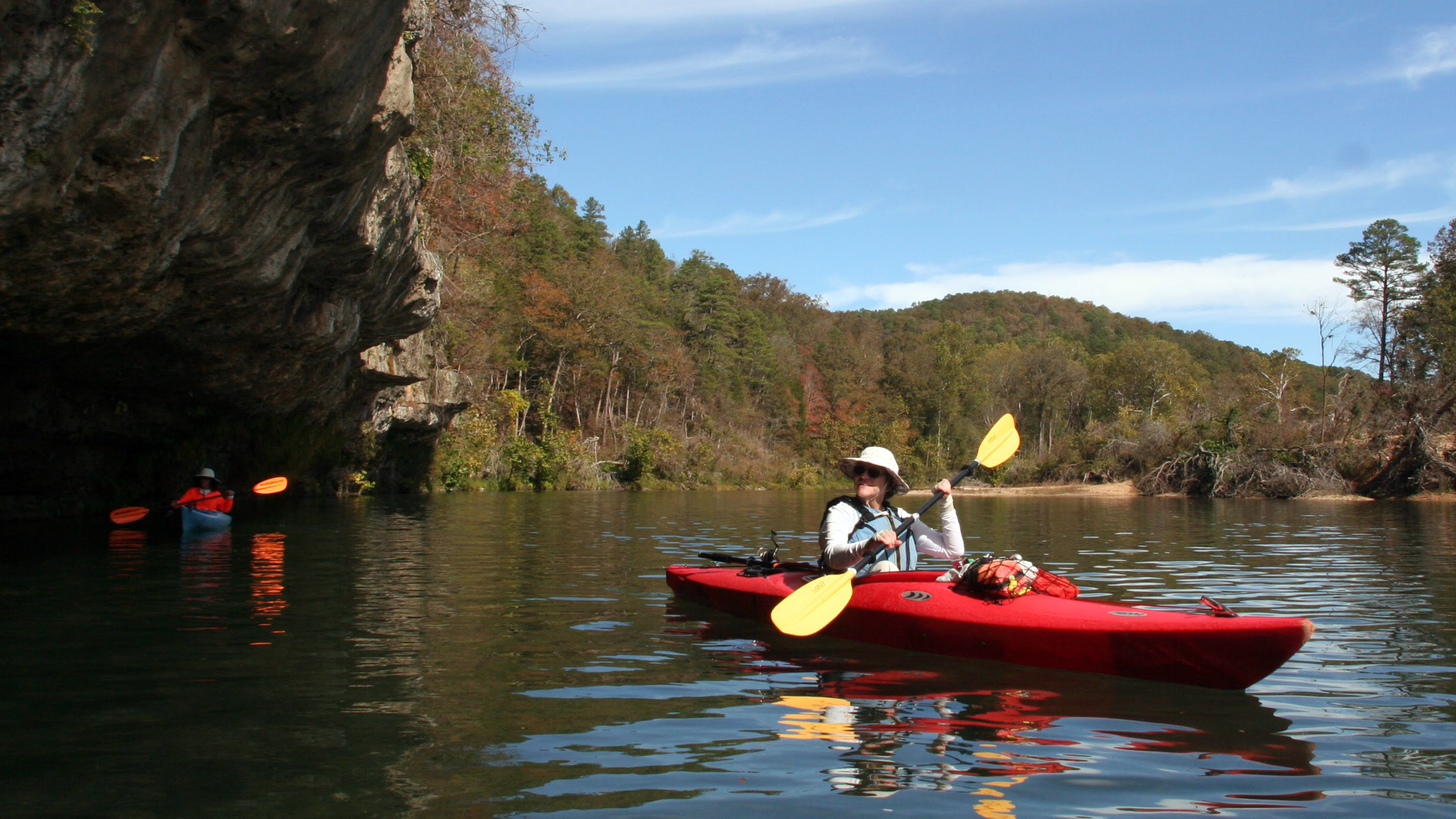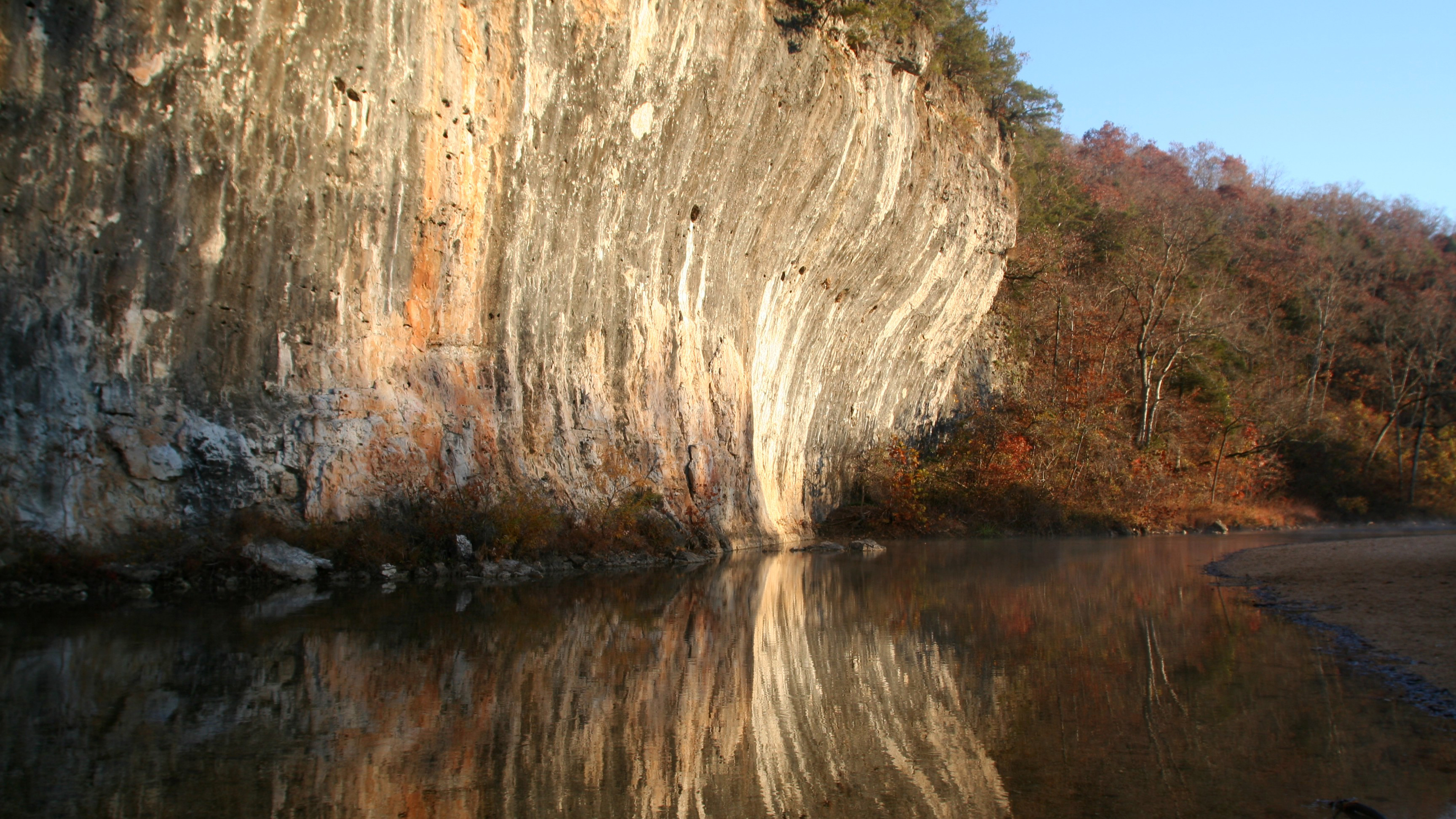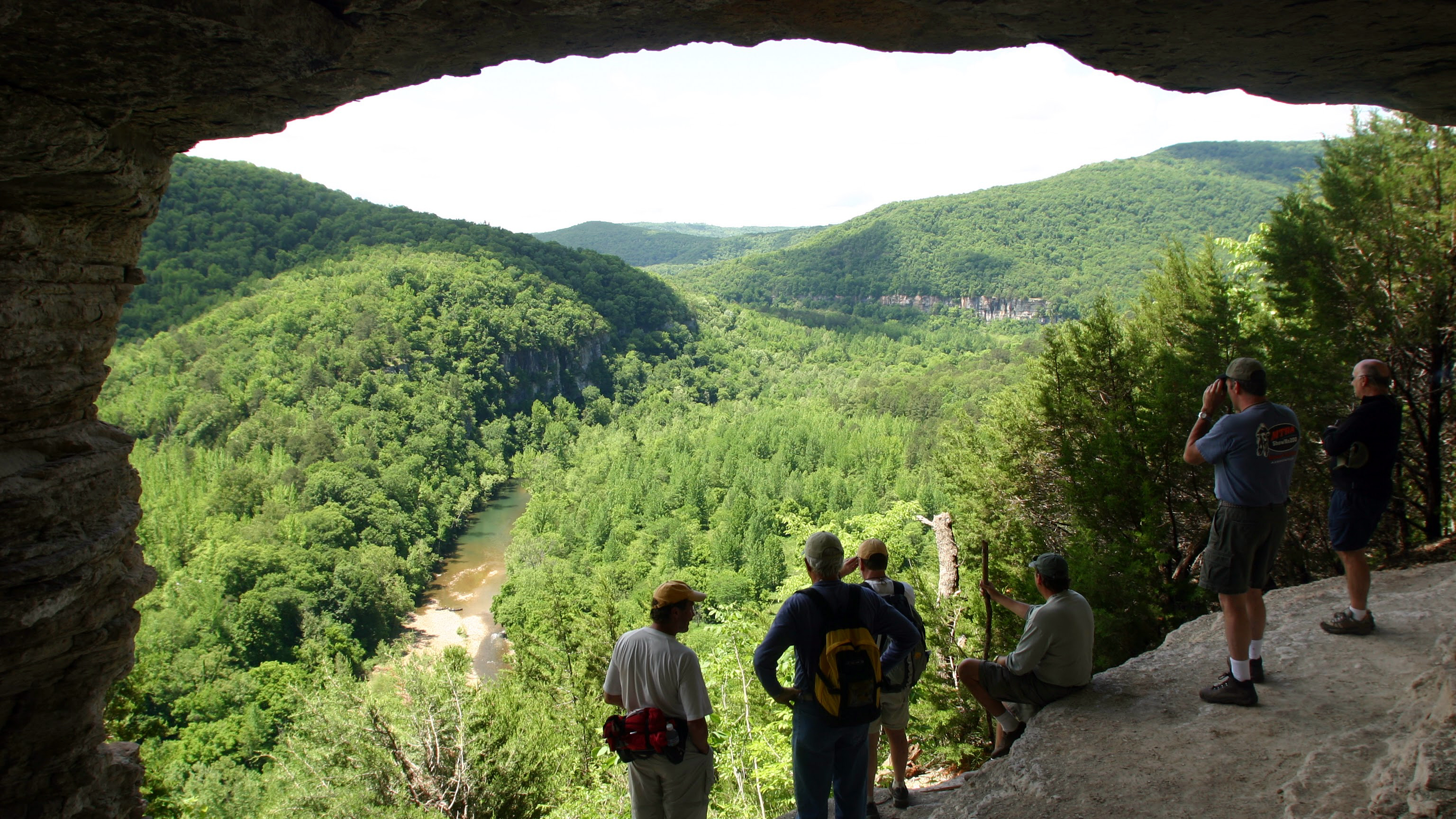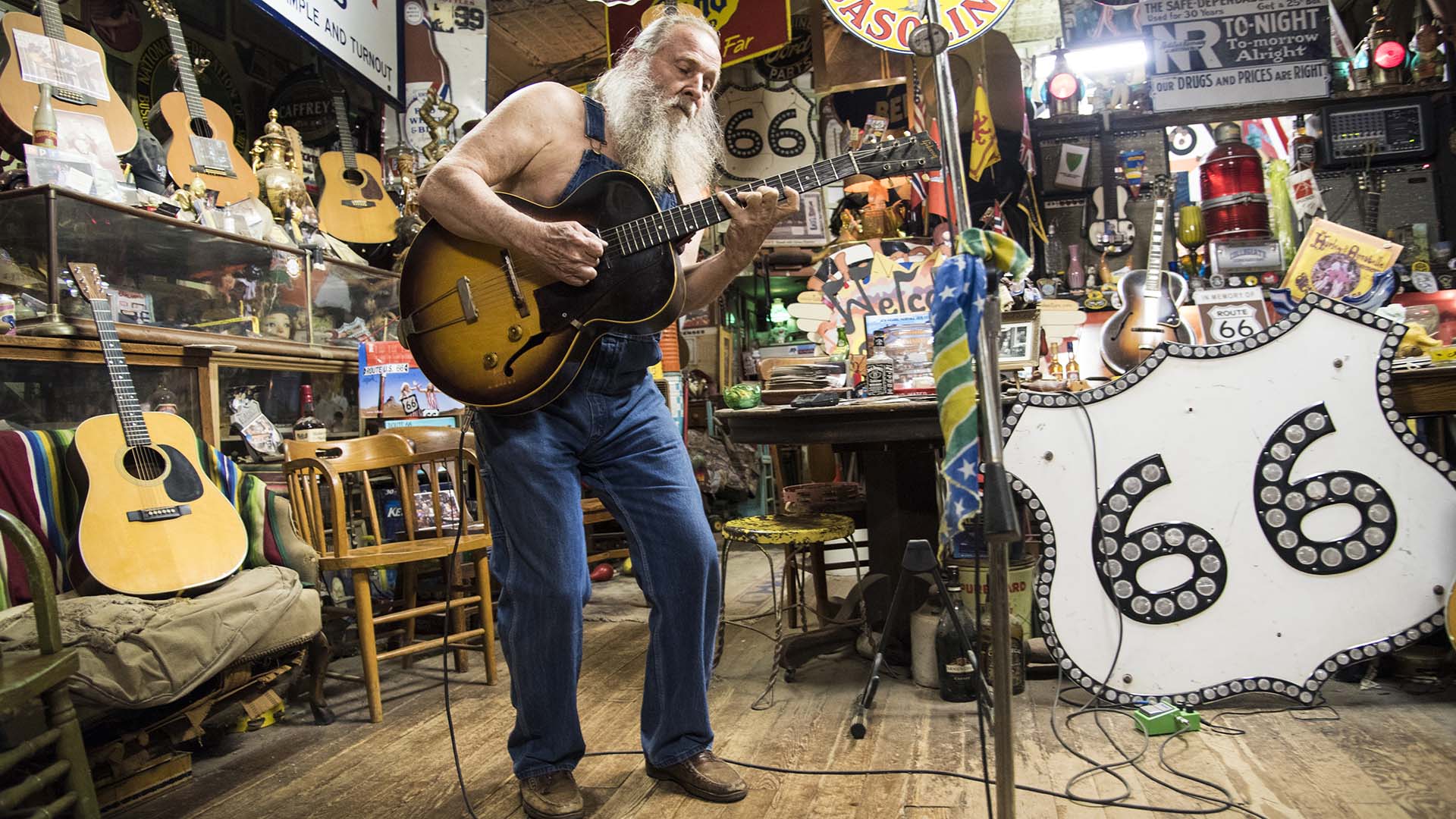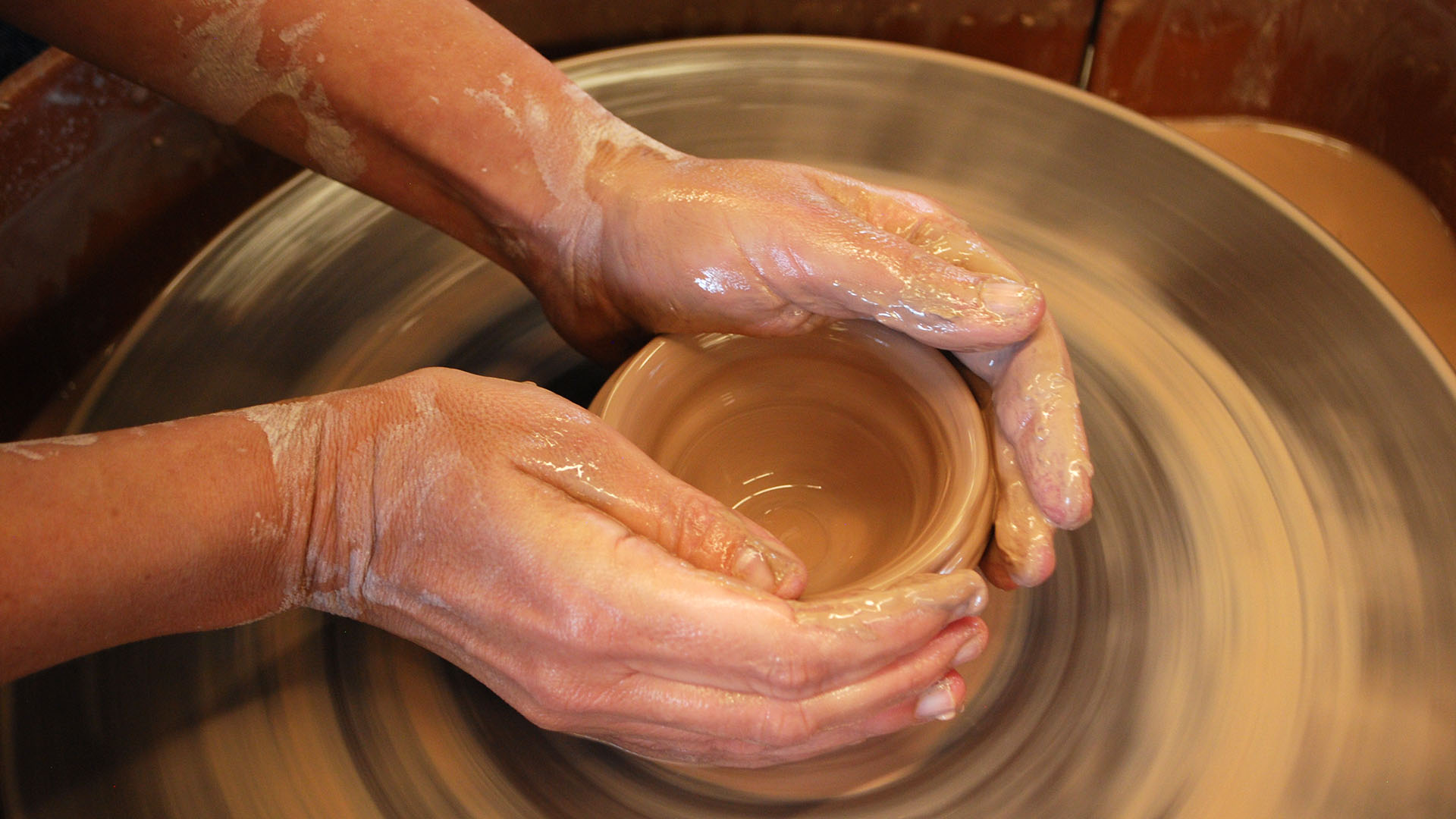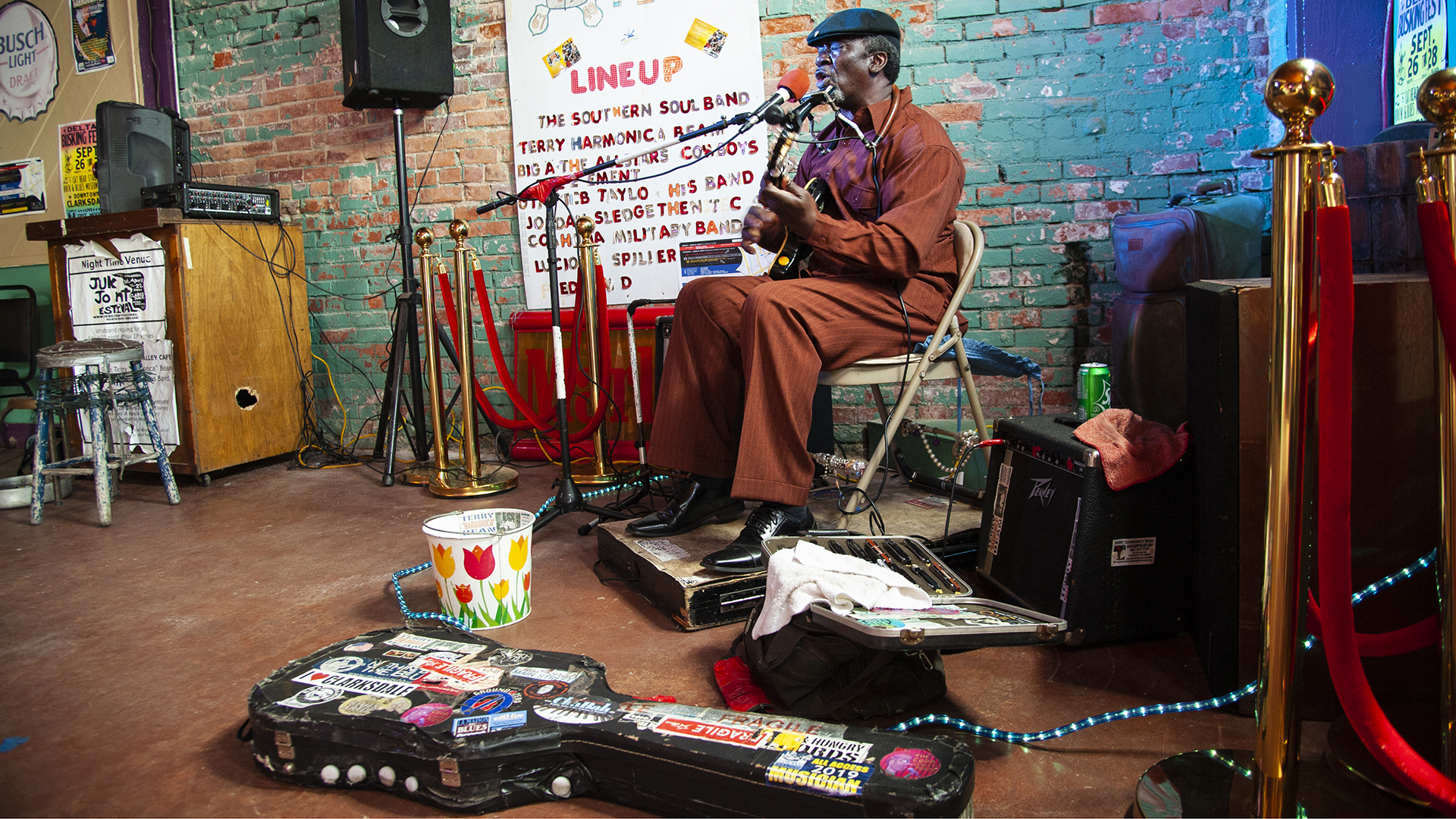Spelunking in the Black Hills of South Dakota
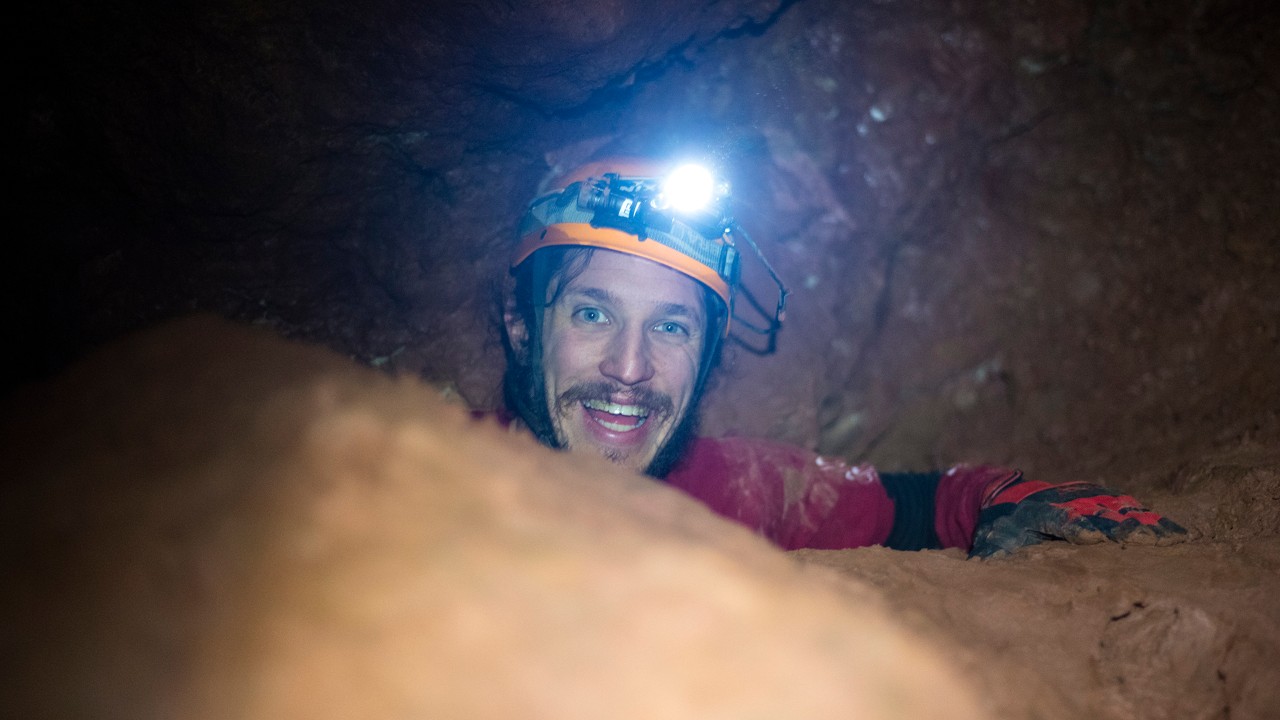
Kevin Chase smiles after making it through a recently found passageway in Rushmore Cave.
Story and photos by Joe Rogers
Joe is a freelance travel writer and photographer based in Denver. See his work at The Travelin' Joe or on Instagram.
Road trip to explore caves leads to fun places and tight spaces.
“Remember, the general rule is if your helmet, shoe or outstretched thumb and pinky fit, you’ll fit,” says Kevin Chase. I don’t say so aloud, but I’m thinking I'll never get my lanky, 170-pound frame through the narrow hole in the subterranean chamber wall just ahead of us. Still, when Kevin shimmies his way in, I follow him. Soon the passage closes in around me, and I have no choice but to revert to a snake-like slither, using my hands, elbows, and knees to inch forward under a ceiling less than a foot above my head. And I love it!
We’re exploring Rushmore Cave, just 15 minutes east of Mount Rushmore National Monument near Keystone, South Dakota. Kevin, an experienced spelunker, is the Natural Attraction Manager at the cave, one of many caves in a band of Pahasapa limestone that encircles the central granite core of the Black Hills.
Guided cave tours — for people of varied skill levels — are the safest way to see these underground wonders dating back millions of years. At Rushmore Cave, you can take the family on a scenic walking tour or sign up for a more adventurous option like mine. Wonderland Cave in Nemo and Black Hills Caverns just outside Rapid City are known for their beautiful stalactites, stalagmites and flowstone formations.
The 209 miles of mapped and surveyed passages make Jewel Cave, about 12 miles west of Custer, the third-longest cave system on Earth. Wind Cave, in the national park that bears its name, is home to 157 miles of intertwining, branch-like passageways that are recognized as the densest cave system in the world.
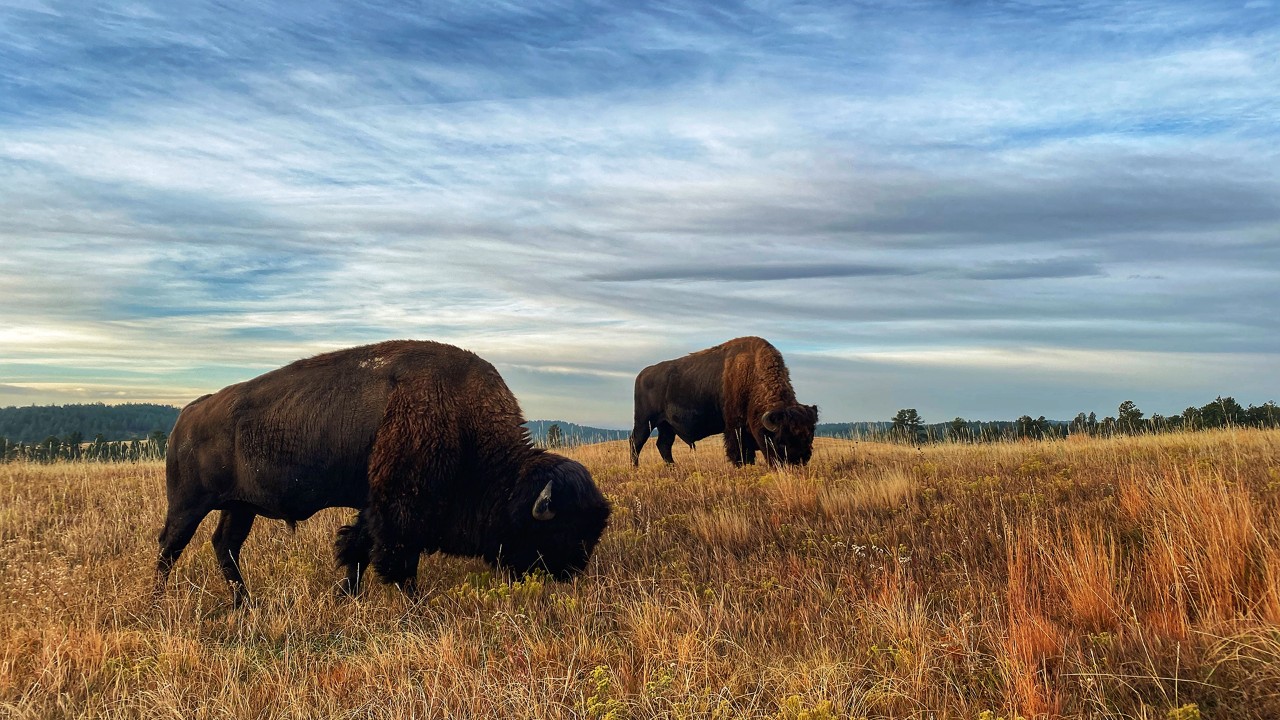
Bison roam the grasslands at Wind Cave National Park.
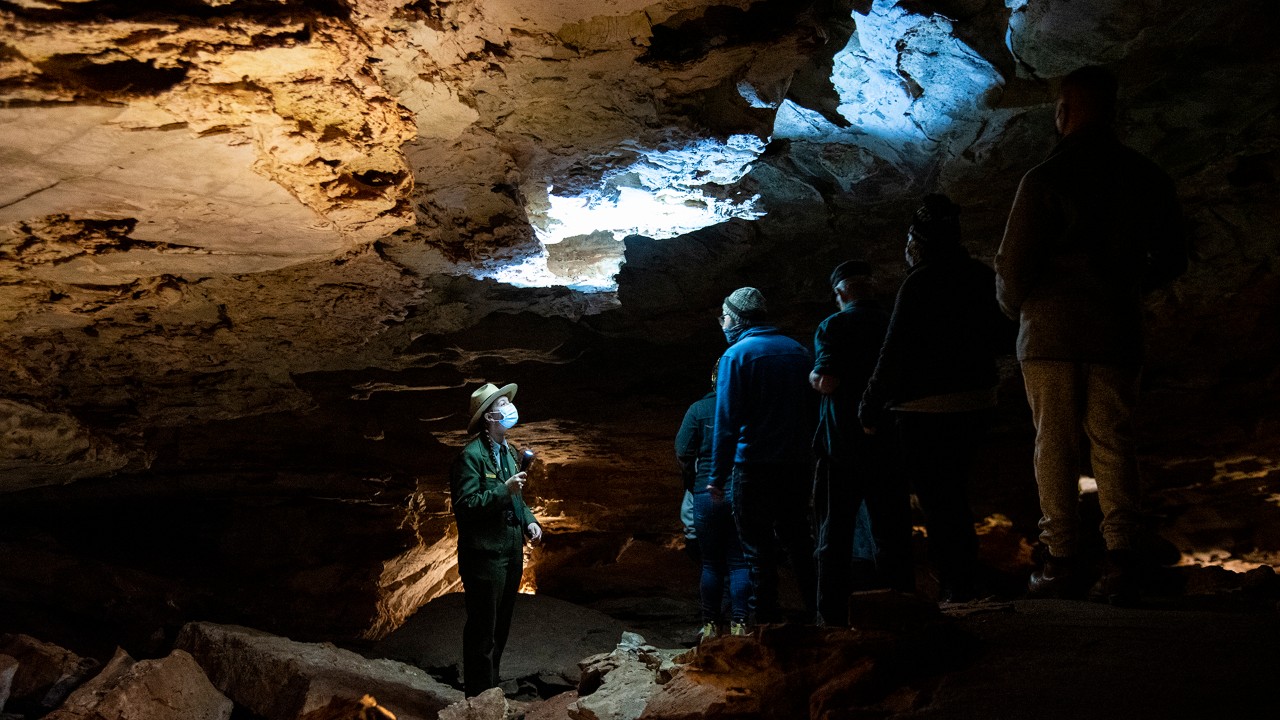
A ranger highlights honeycomb-like patterns of boxwork during a tour of Wind Cave’s vast chambers.
‘Barometrically Speaking, Caves Breathe’
A few days before caving with Kevin, I'd had dinner with Adam Weaver and Nick Anderson, members of the National Speleological Society and the Paha Sapa Grotto, a local subchapter. Adam and Nick also are among the volunteers who survey newly discovered cave passages. I was surprised to find out that Nick was part of a two-person team that mapped and named a small cave I had often explored near my childhood home in nearby Hot Springs.
We also talked about how barometrically speaking, caves breathe. When outside air pressure is higher than it is in the cave, it “inhales.” When air pressure outside is lower than it is inside, the cave “exhales.” In 2003, a cave climatologist who initiated an airflow study of caves in the Black Hills found that monitoring the amount of air that comes from a cave can help determine the cave’s size and also whether there may be undiscovered tunnels. That’s an open invitation to mappers and surveyors.
“It’s true exploration,” Adam said. “Caves are one of the last places on earth that people are finding new land and new lakes.” Nodding, Nick agreed. “I think that's why we all do it, to discover what's around the next corner. There's nothing like pushing yourself for four days underground to finally discover the next huge passageway.”
The day after our dinner, I hopped in my rental car and made the hourlong drive south from Rapid City to Wind Cave National Park, where I took the 90-minute Fairgrounds Cave Tour. I enjoyed being in the vast chambers and seeing the rare formations in the cave’s upper and middle levels. The moment the ranger turned off the lights and all was pitch black, I was whisked back to being that kid who long ago fell in love with this cavernous lair.
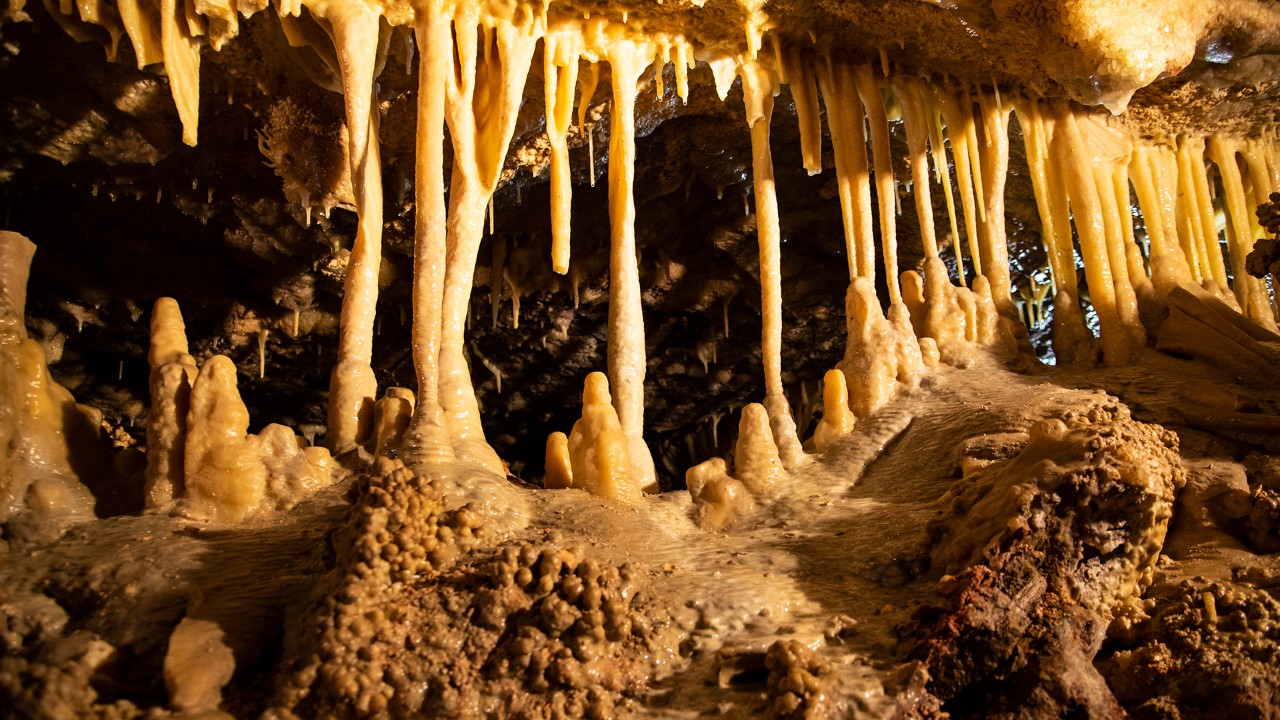
Wonderland Cave features a 40-foot “icicle fence."
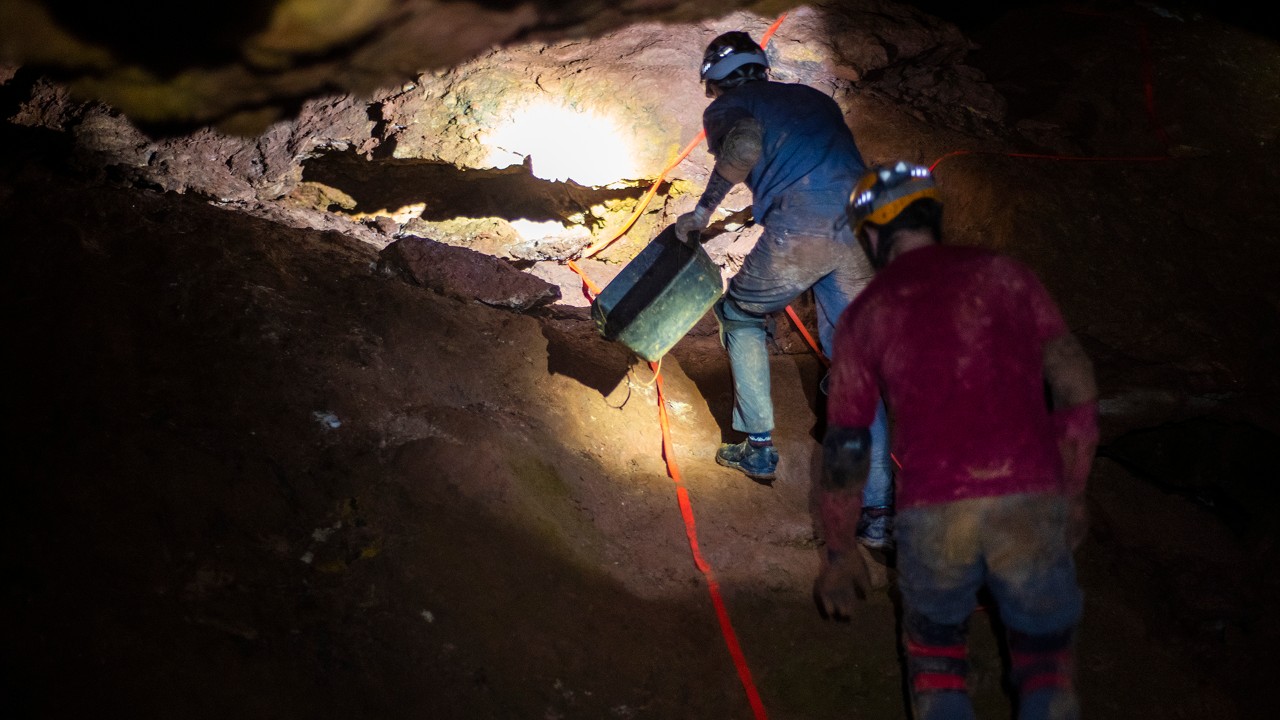
Kaden Franke leads the way to one of Rushmore Cave's active dig sites.
Face to Face with Geologic Formations
From Wind Cave, I drove 65 miles north on Highway 385 to Wonderland Cave, which boasts the largest variety of geologic formations in the Midwest, including the 40-foot “icicle fence.” My personal highlight on the 45-minute tour was catching water droplets from the ceiling on my tongue. “It’s about a two-week filtration process through the rock,” the guide told me, “and it comes out as some of the purest water in the world.”
But I couldn’t resist seeking out a true, down-and-dirty spelunking experience, and that’s how I end up deep in Rushmore Cave with Kevin and Kaden Franke, another adventure tour guide. After just 30 minutes, all three of us are covered in dirt and sticky, clay-like mud. Our headlamps reveal shadowy passages and creviced overhangs in a small, moonscape-like chamber.
We rest there for a few minutes, and then Kevin checks out an opening in the floor. “It’s straight down, so be prepared to catch yourself,” he says as he descends head first. I flip on my headlamp, cinch my kneepads, pull on my muddy gloves and follow him. Kaden follows me.
For the next hour, we contort our bodies as we move through uneven, claustrophobic-inducing passageways to explore the Geode Room, the Rope Room and the New Room. When we reach a passage called Bookworm Alley, Kaden leaves us. “I’m not a fan of the longer crawls,” he says, heading for the cave’s entrance. I immediately understand his reasoning, as the start of the next crawl looks tighter and more intense than what we just came through.
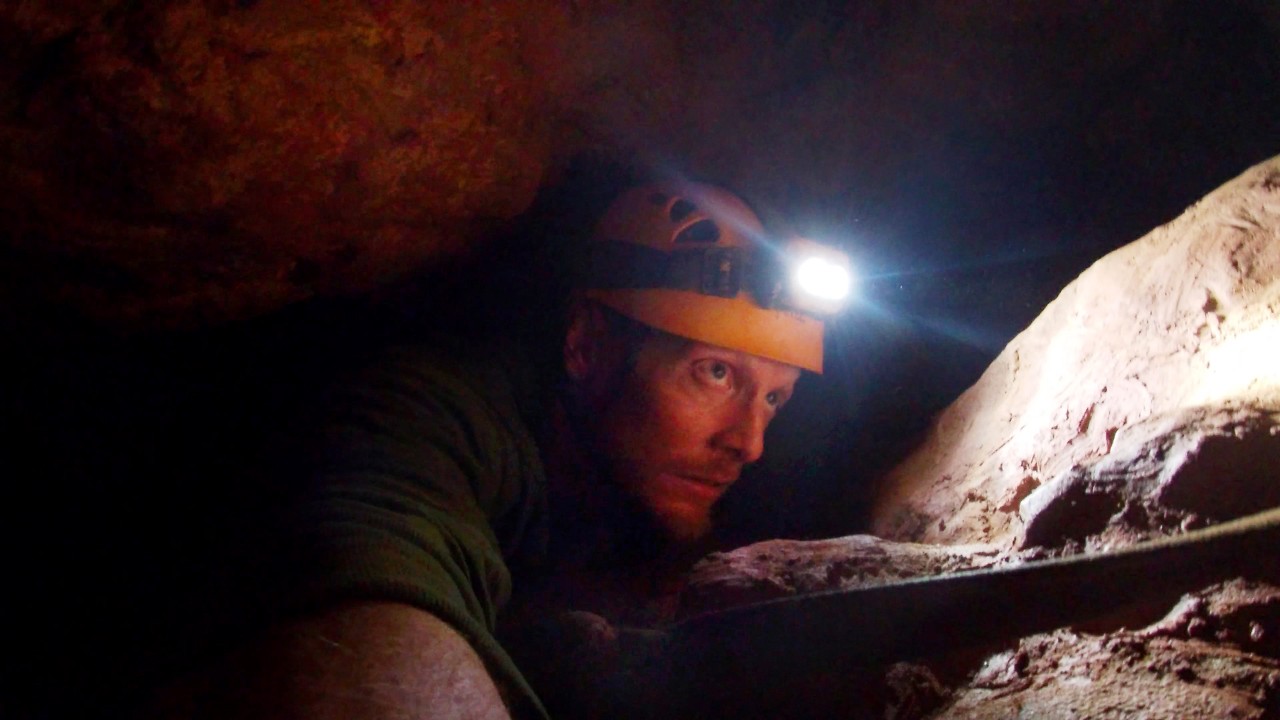
The author belly crawls his way through a narrow passageway.
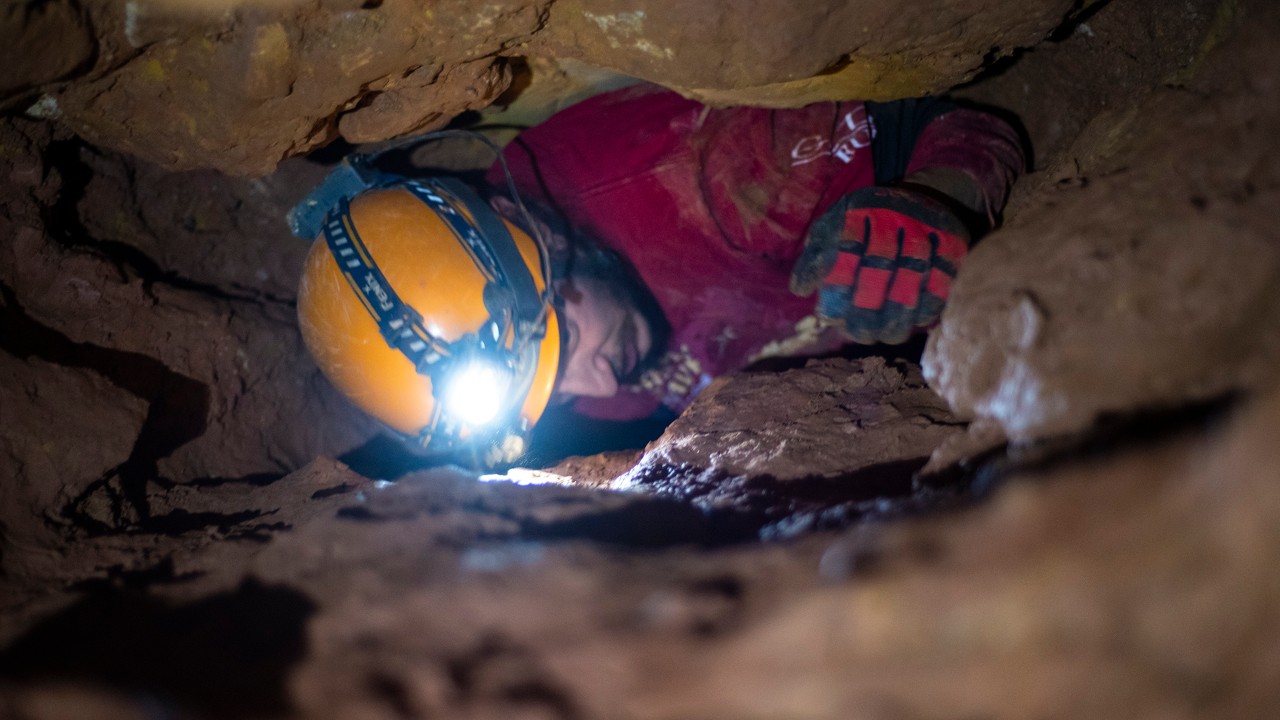
Kevin Chase squeezes through a tight section of Bookworm Alley in Rushmore Cave.
‘I Feel the Weight of the Earth Above Me’
For the next 45 minutes, I follow Kevin through a network of body-length crawls, twists and turns, executing side-stepping maneuvers between giant rocks and perfecting my serpentine slither. At one point, Kevin stops to remind me about the precarious crawls ahead. “These last few moves require us to go headfirst on our backs,” he says. “You ready?”
With a slightly hesitant chuckle, I say, “Guess so.” Kevin flips onto his back and disappears into the tunnel. I lie back and extend my right arm out in front of me. My fingers start grasping at the limestone, looking for any type of grip. The heels of my boots dig into loose dirt and gravel, working in tandem with my shoulder blades and butt to move me forward. We do this three times, each tunnel a full body length or more long. In the last one, my chest and helmet scrape against the ceiling.
At that moment, I feel the weight of the Earth above me. I try to move, but my left shoulder is lodged. I take a breath, tuck my arm closer to my side as I exhale, then pull with my right arm — and I’m through. The dim lights of the main cave appear just ahead. Once out, I high-five Kevin. He turns off his headlamp and smiles. “Yeah,” he says, “I thought you’d like it.”
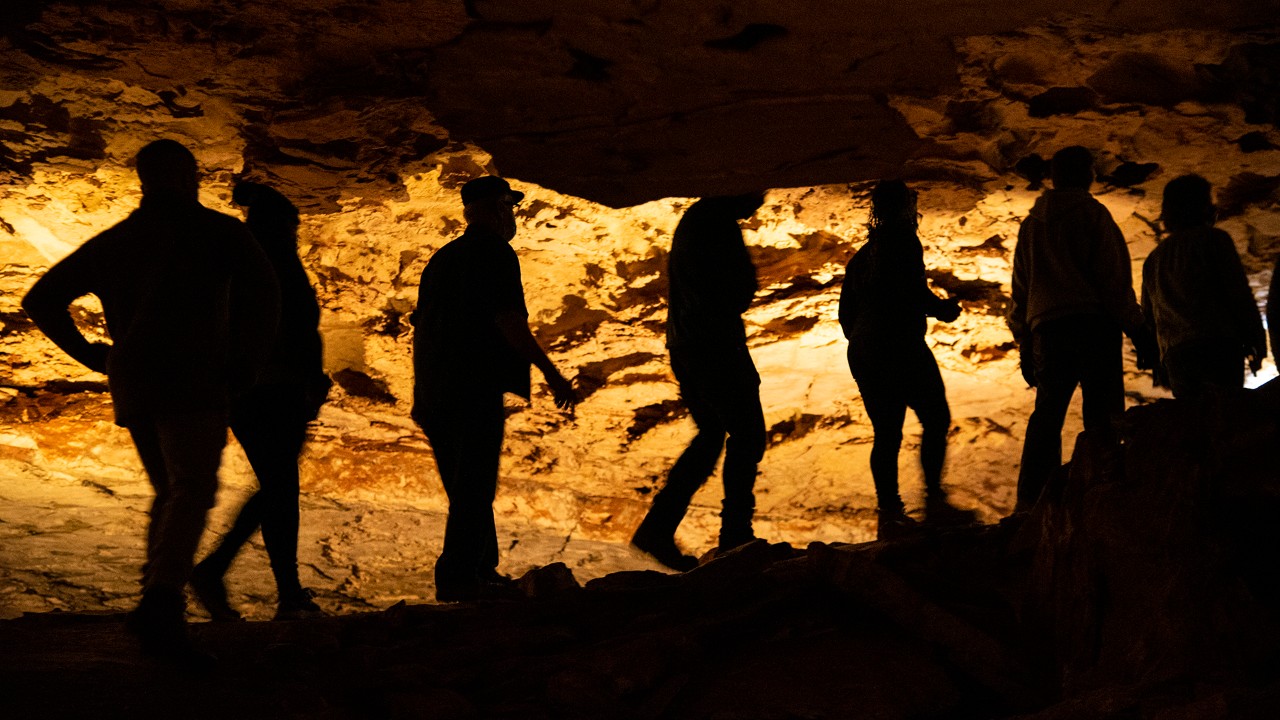
Visitors walk through Wind Cave during the Fairgrounds Tour.
Related
Read more stories about the Midwestern United States.
- DELETE - Edible Bugs: From Grub to Gourmet
- Weekend Getaway to Madison, Wisconsin
- Nostalgic Route 66 Road Trip: St. Louis to Chicago
- Best Places to See Bald Eagles in the Midwest
- Weekend Getaway to St. Louis, Missouri
- Weekend Getaway for Kids in St. Louis, Missouri
- Weekend Getaway to St. Louis for Food
- Ohio Trips
- North Dakota Trips
- DELETE - Great Places to Run in the U.S.
- Kansas Trips
- Genealogy Travel and Research
- Iowa Trips
- Boundary Waters Canoe Area Wilderness
- Minnesota Trips
- Caving in the Black Hills of South Dakota
- South Dakota Trips
- Nebraska Trips
- Sandhills Journey Scenic Byway
- South Dakota Black Hills
- Road Trip to Discover Haunted Indiana
- Hunting for Wild Mushrooms in Indiana
- Road Trip to Find the Best Pies in Indiana
- Indiana Trips
- Road Trip to Indiana Dunes National Park
- Wisconsin Trips
- Food Road Trips from Madison, Wisconsin
- Road Trips from Madison, Wisconsin
- DELETE - Road Trip to 5 Midsize Cities With Thriving Art Scenes
- DELETE - Road Trip to 5 Art Galleries Outside the Mainstream
- DELETE - Road Trip to 5 Indie Bookstores Worth the Drive
- Family Reunion in South Haven Michigan
- Top 4 Beaches in Michigan for Your Next Trip
- Things to do in South Haven, MI
- Weekend Getaway to Corktown in Detroit
- Isle Royale National Park
- Michigan Trips
- Southern Illinois Road Trip Features Hidden Gem Outdoor Adventures
- Illinois Trips
- Top 5 Ozark Rivers to Float
- Weekend Getaway to Echo Bluff State Park
- Floating on Ozark Rivers
- Nostalgic Route 66 Road Trip: Albuquerque to St. Louis
- Learning to Make Pottery in New Orleans and Gulf Coast
- Missouri Trips
- The Great River Road: Missouri to Louisiana
- The Great River Road: Minnesota to Missouri

